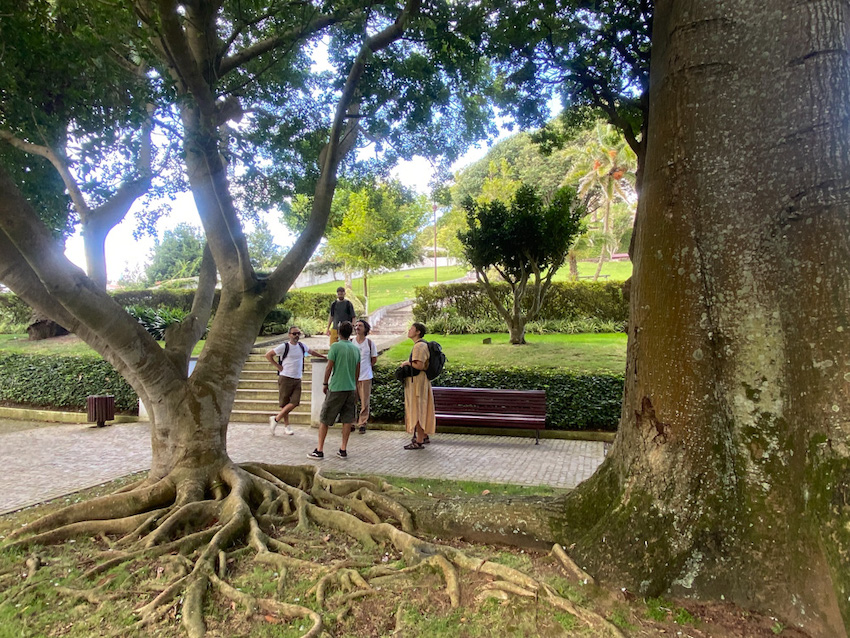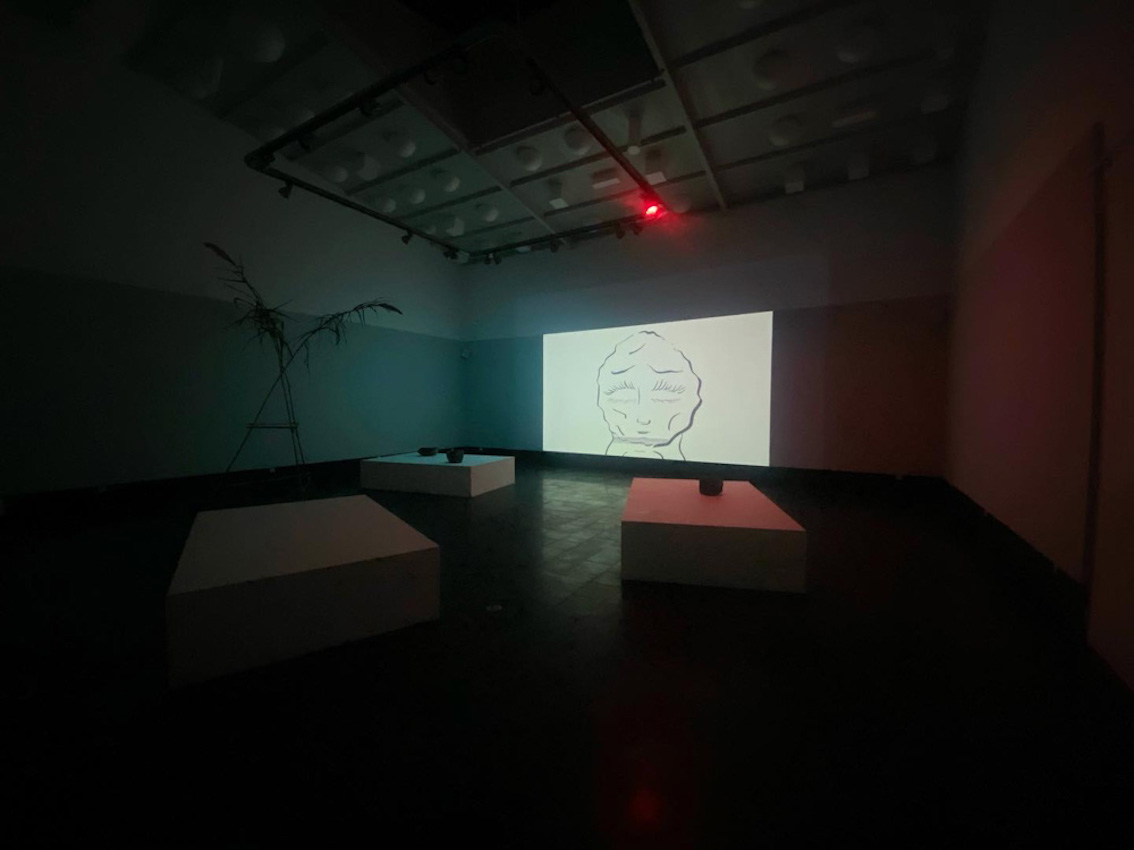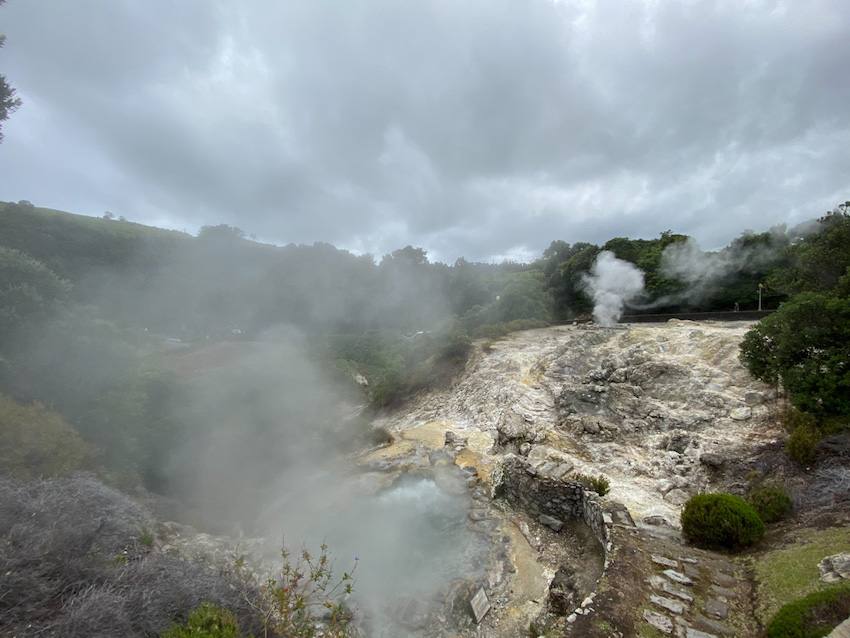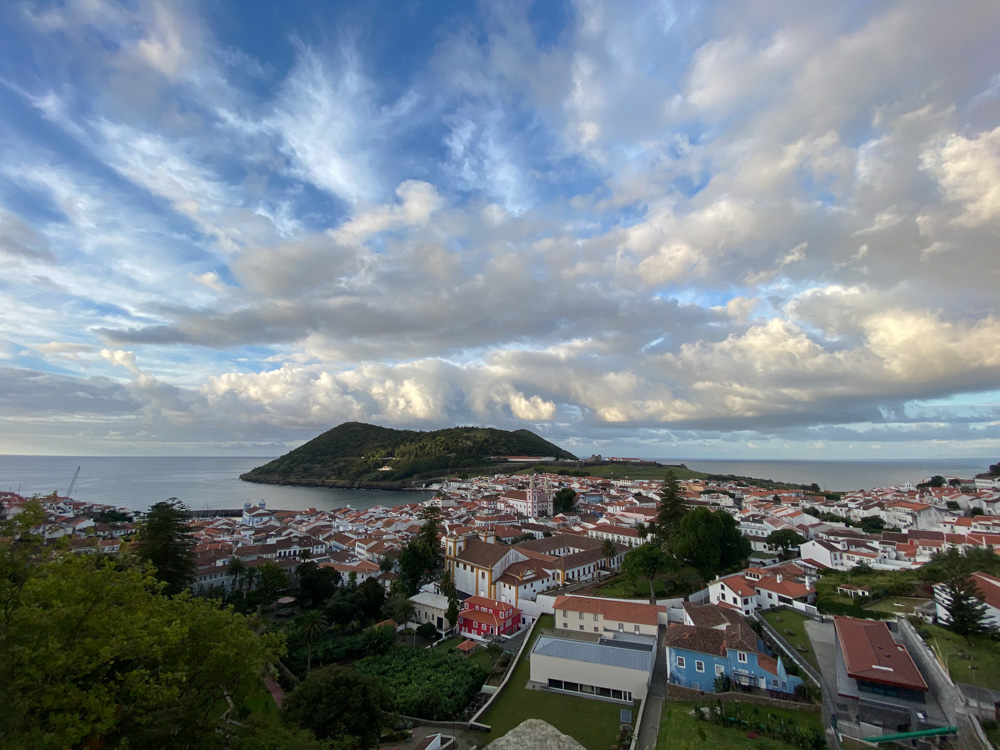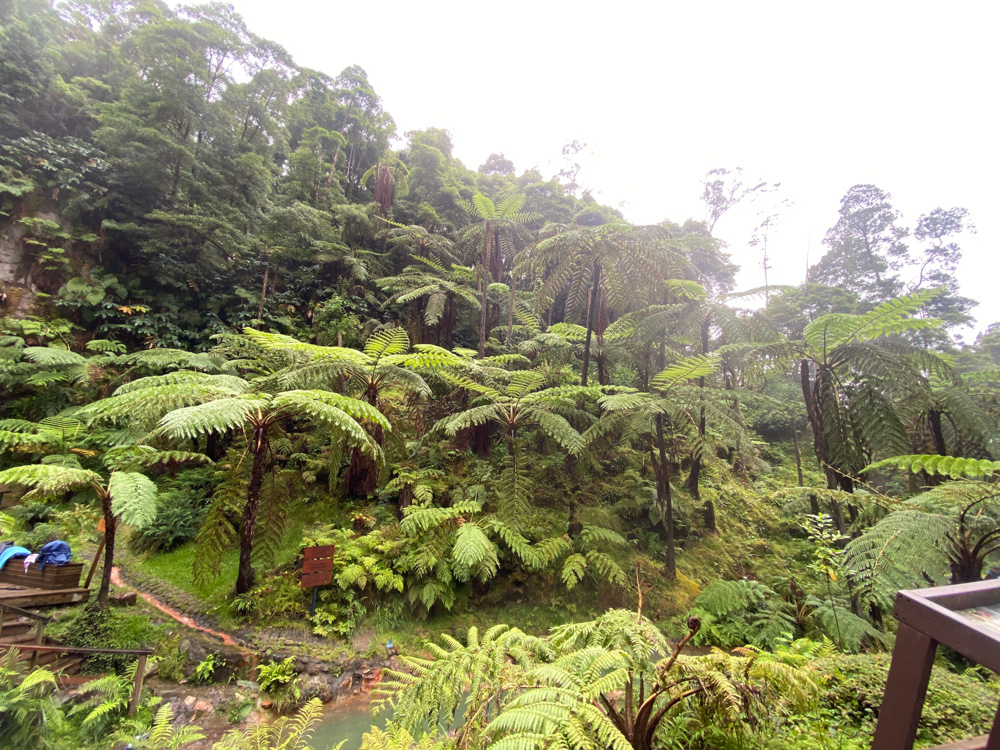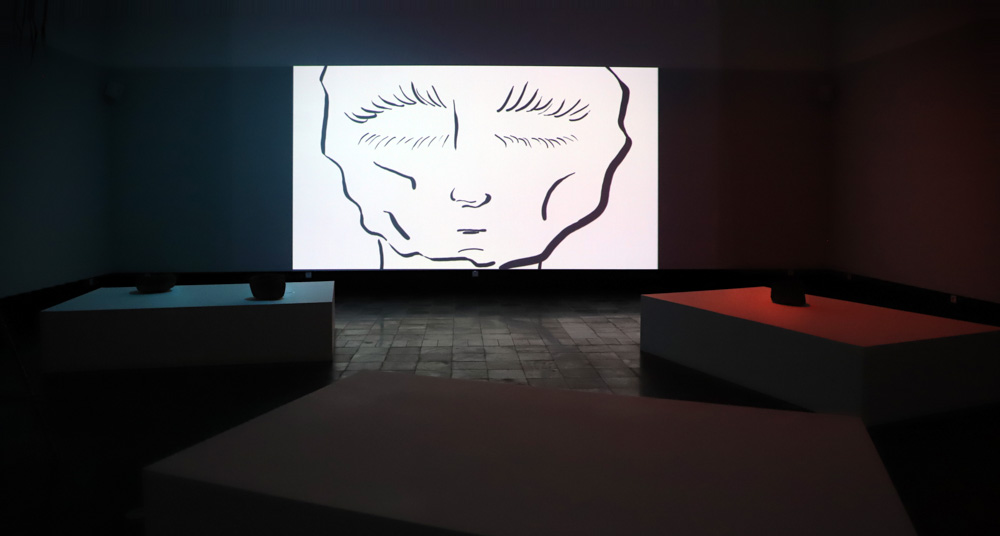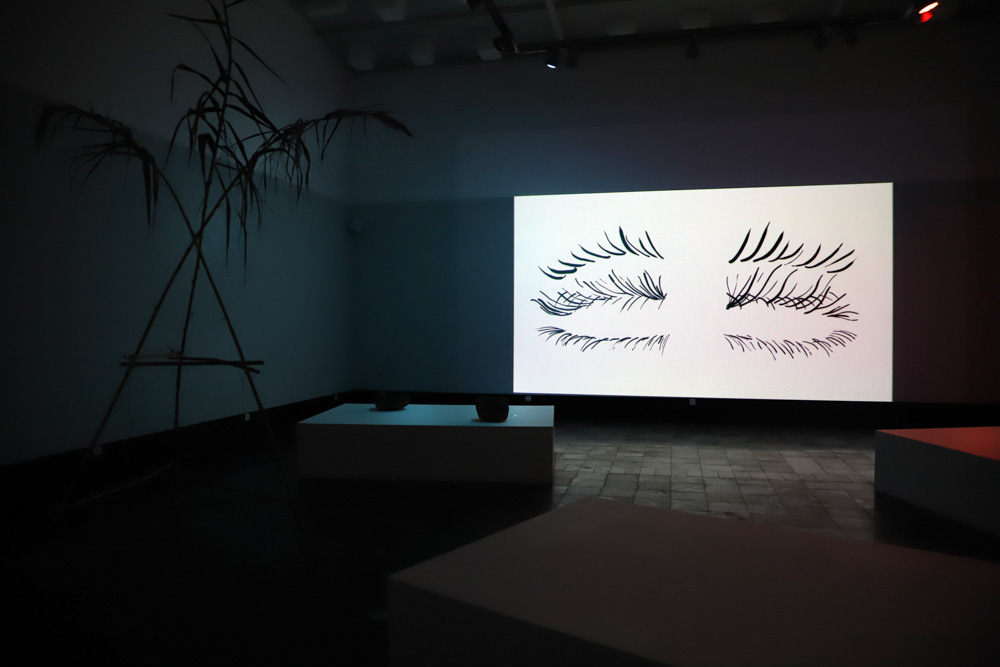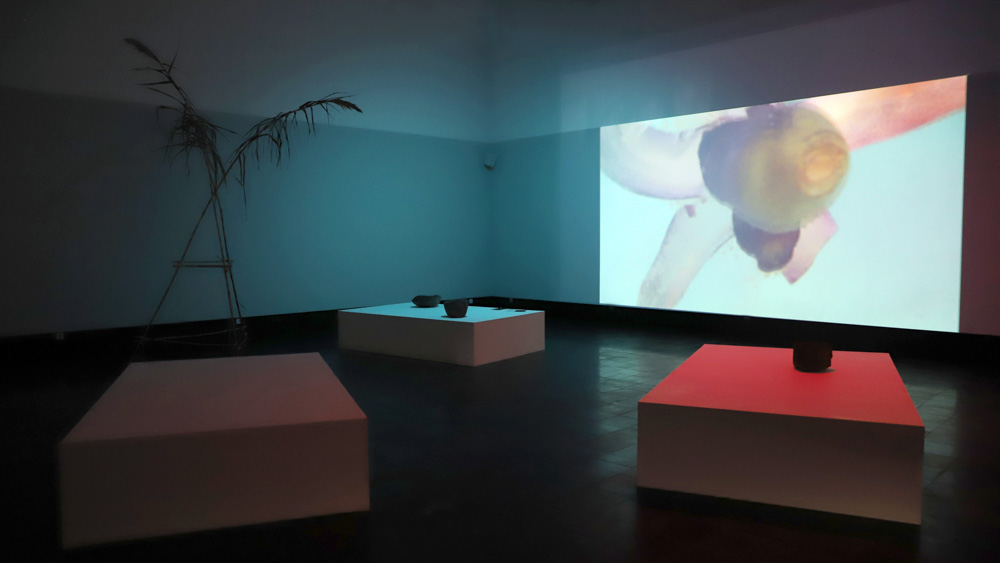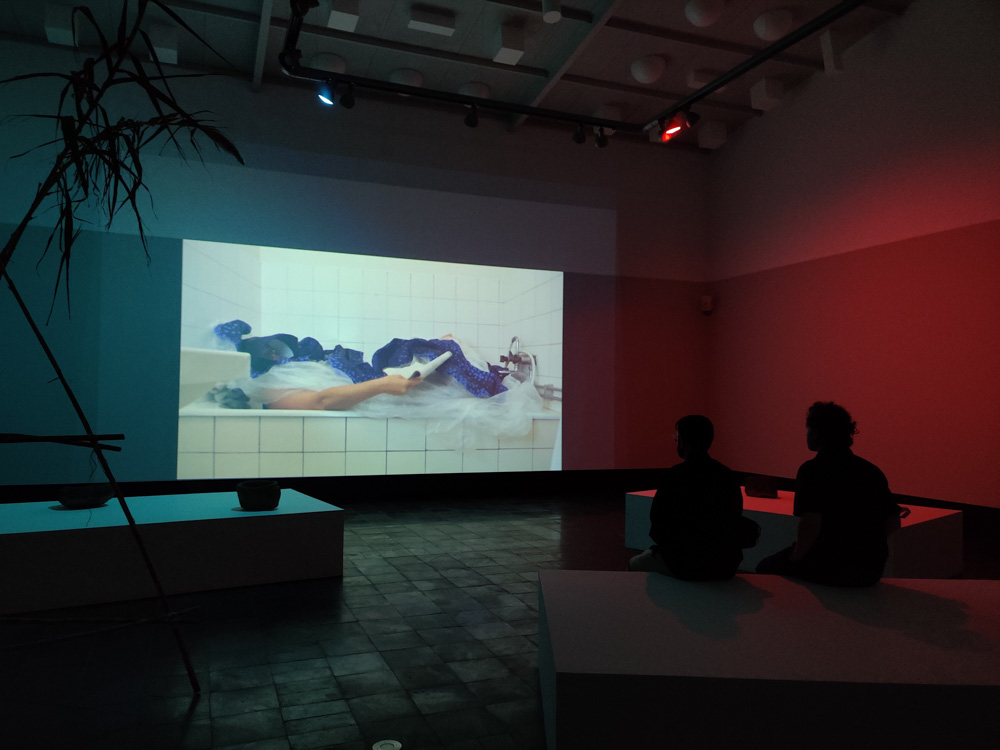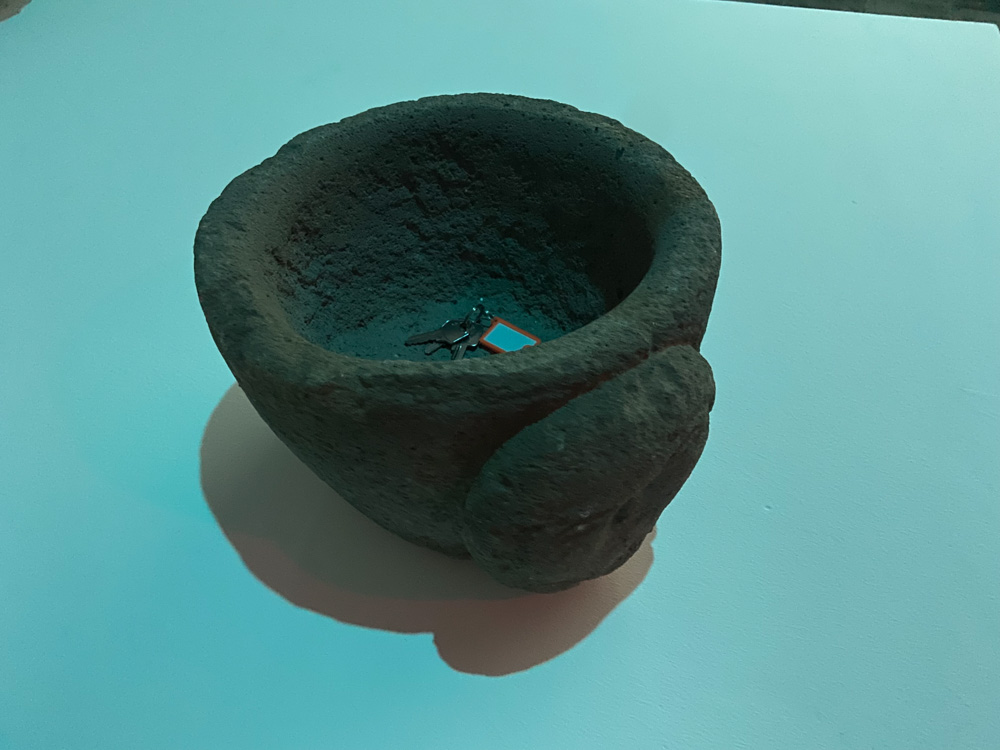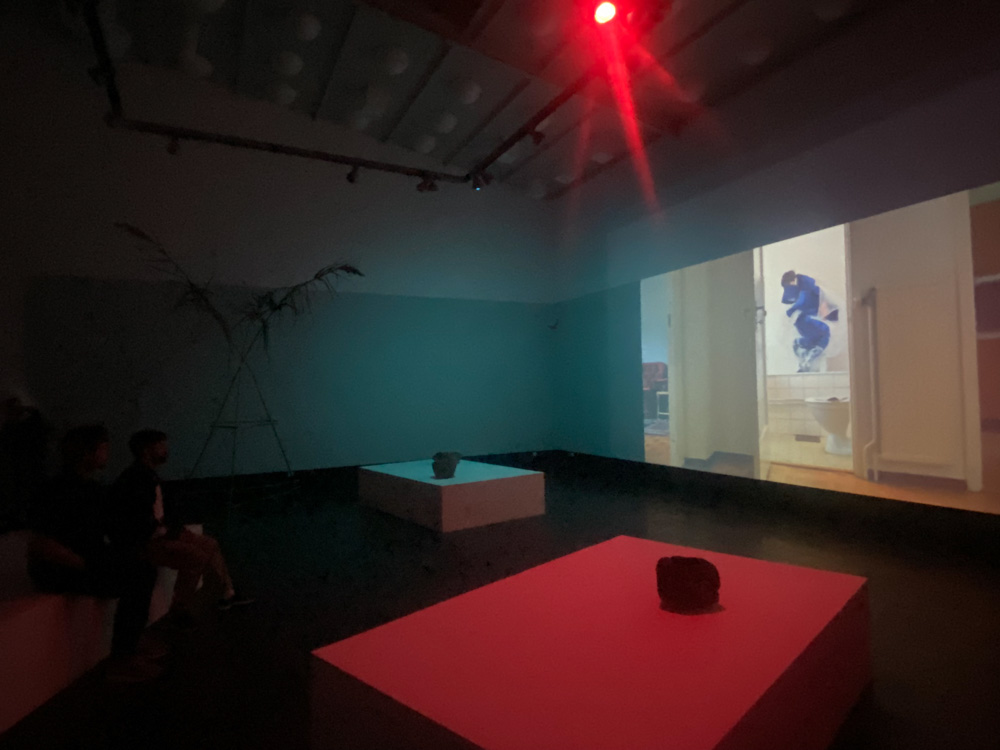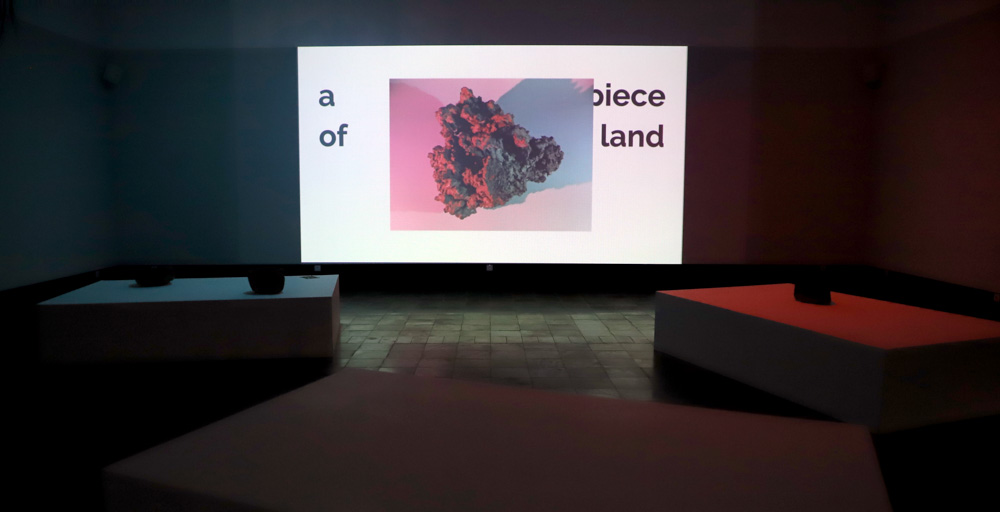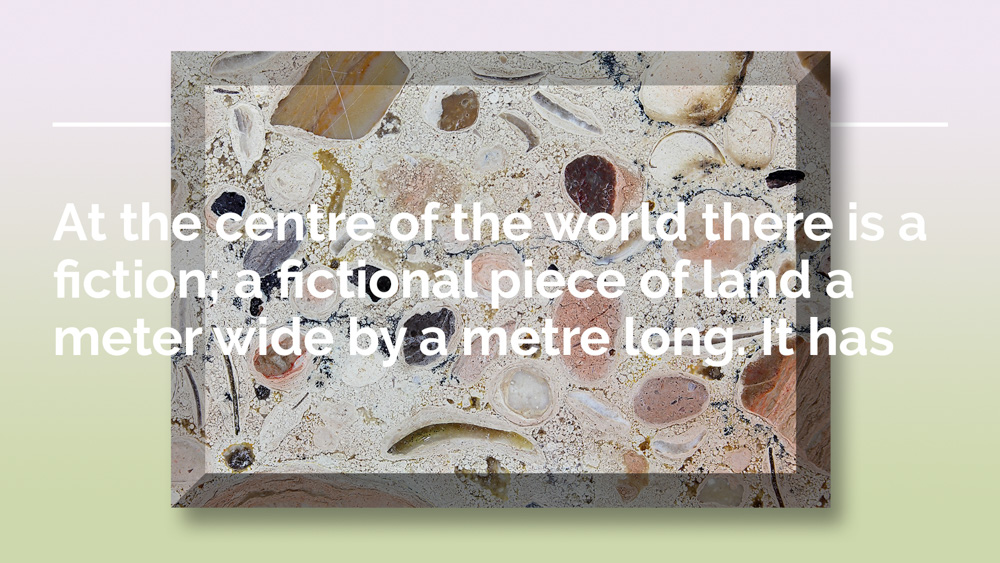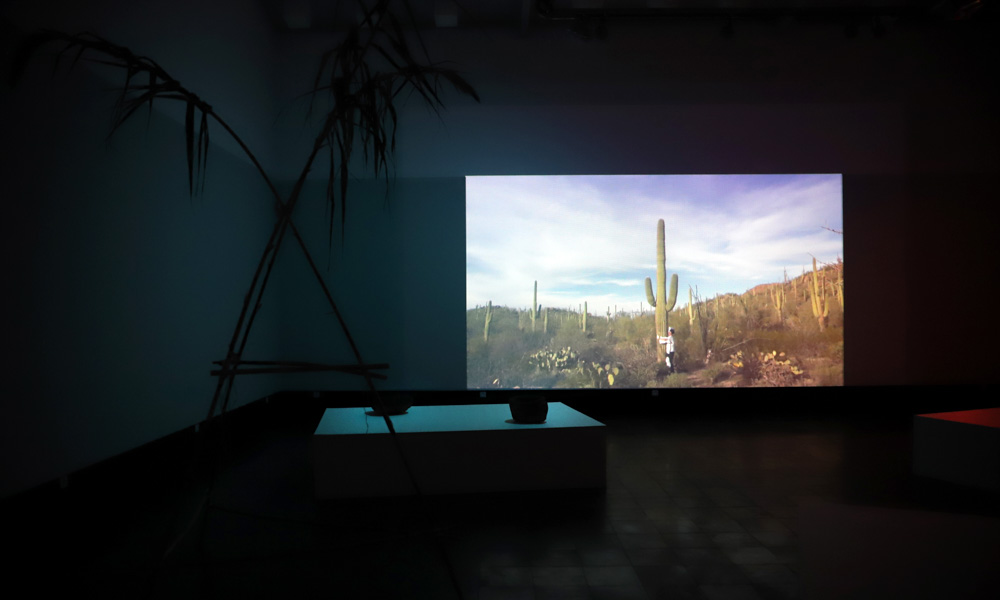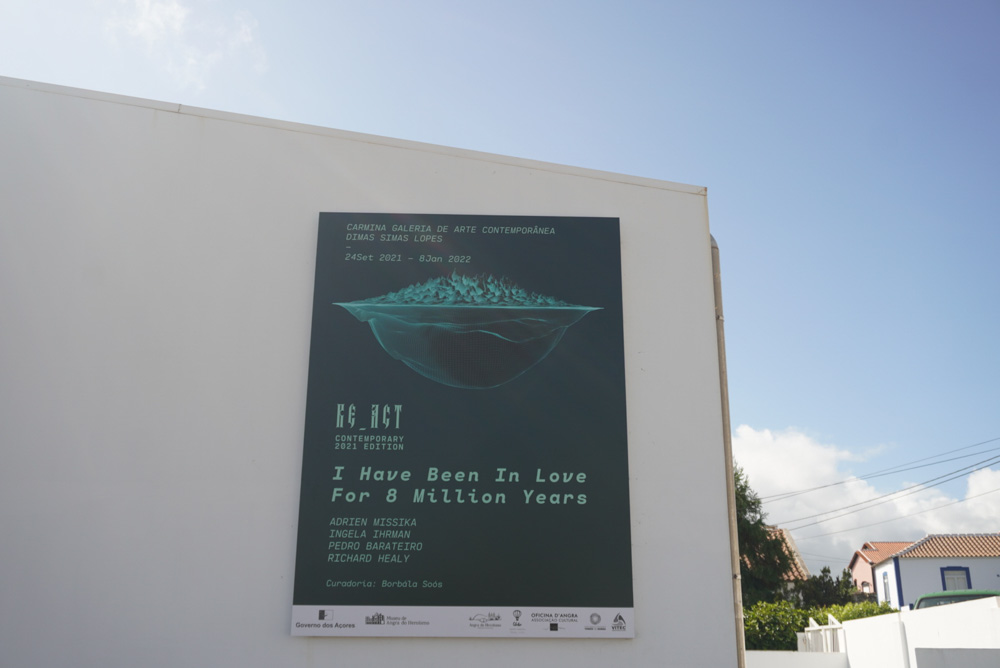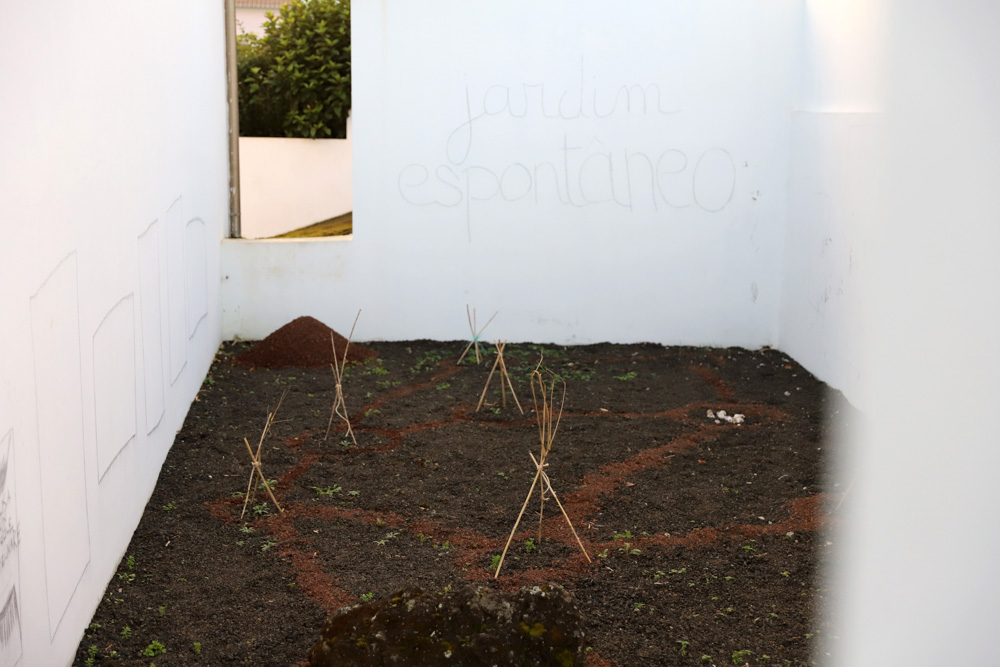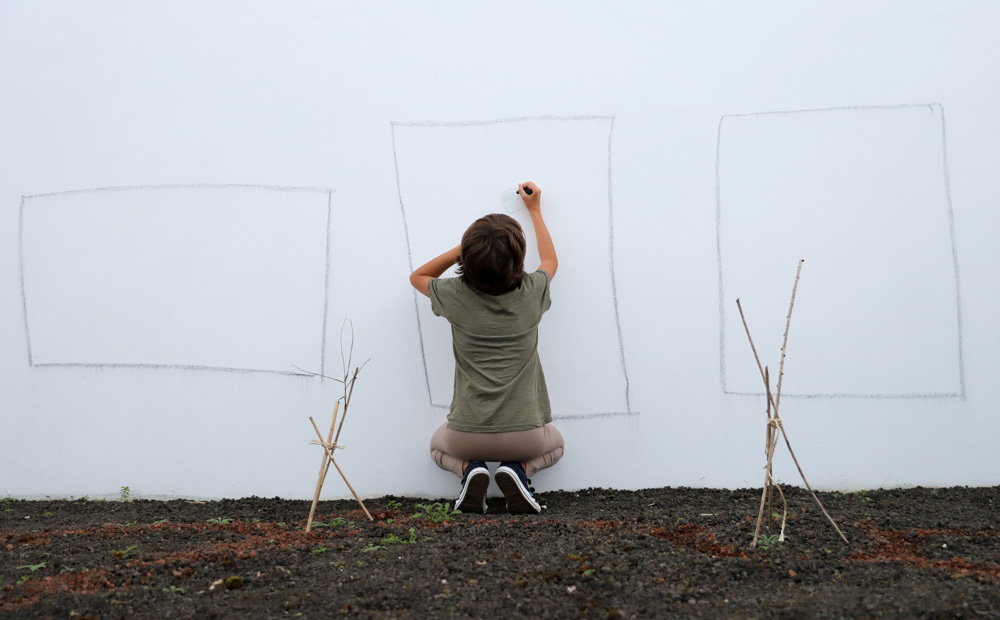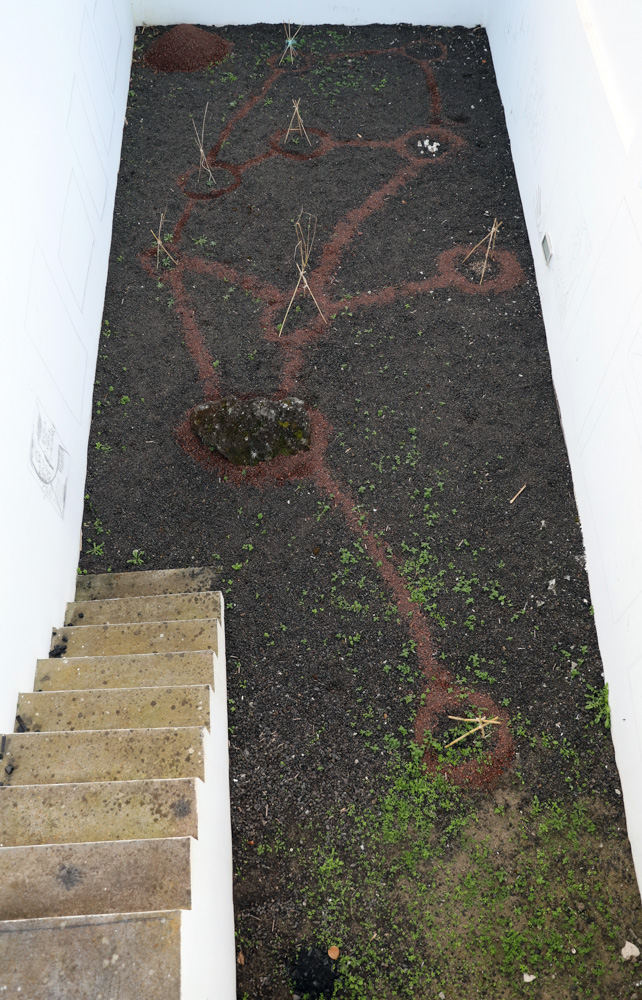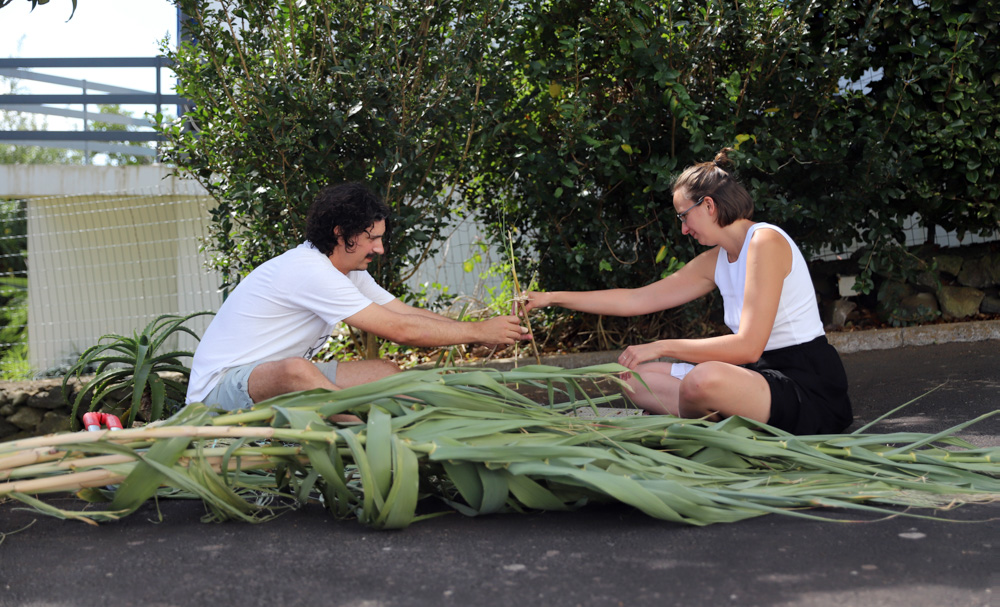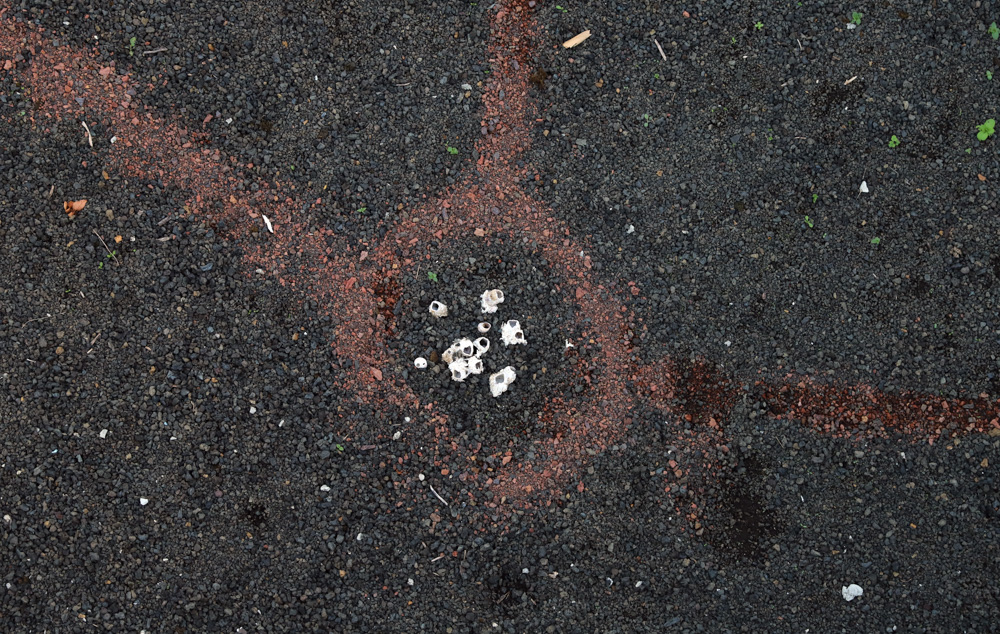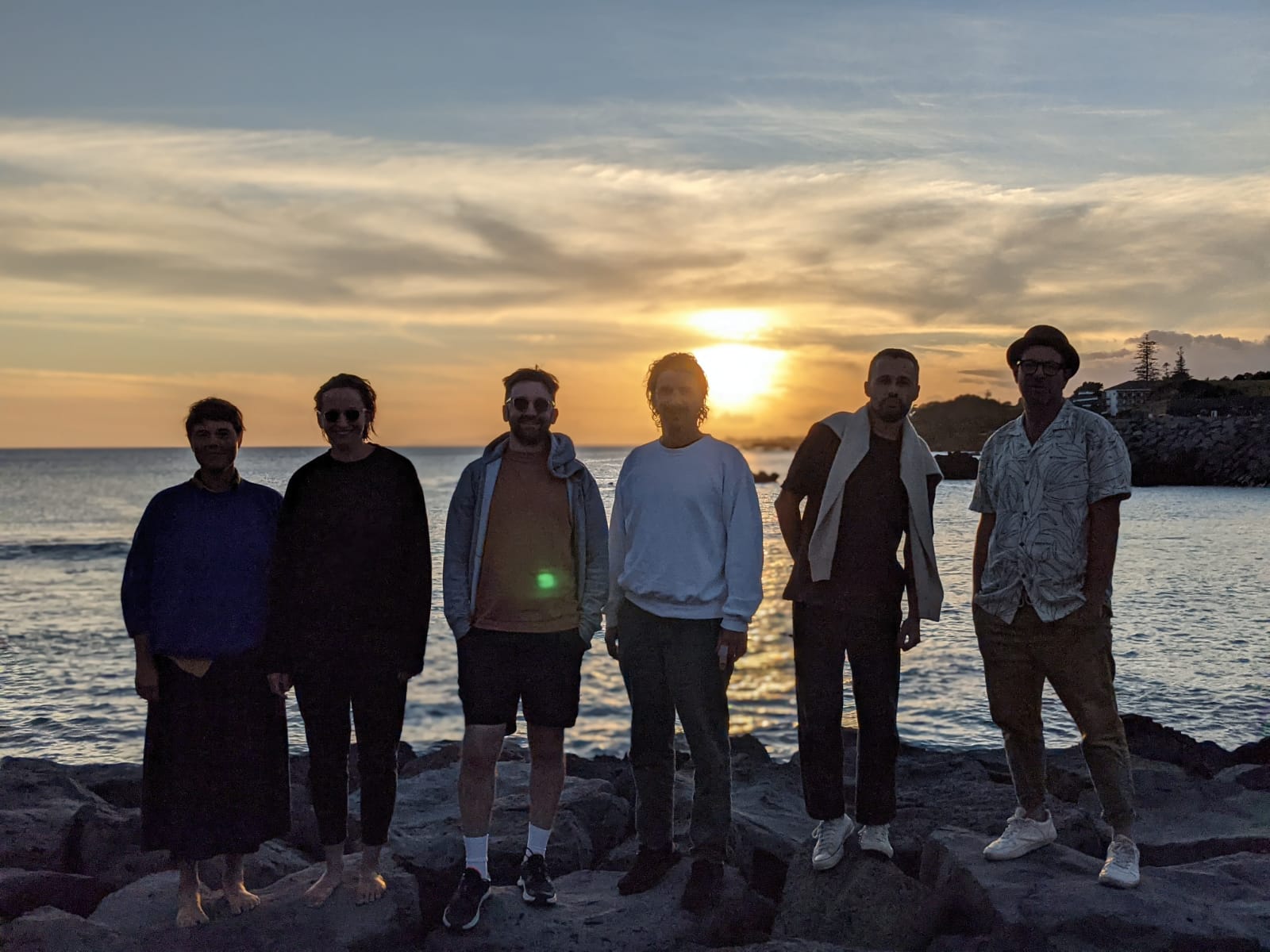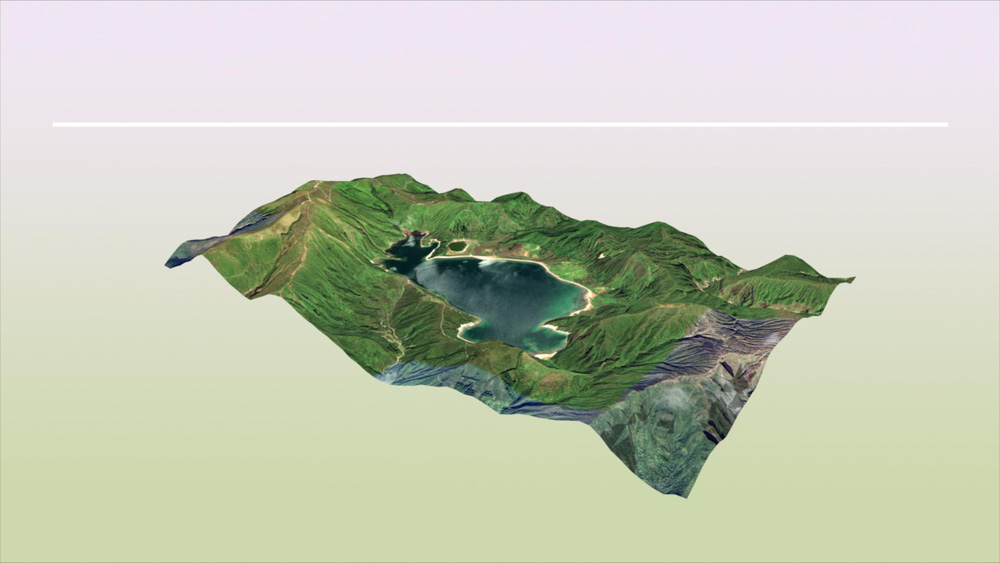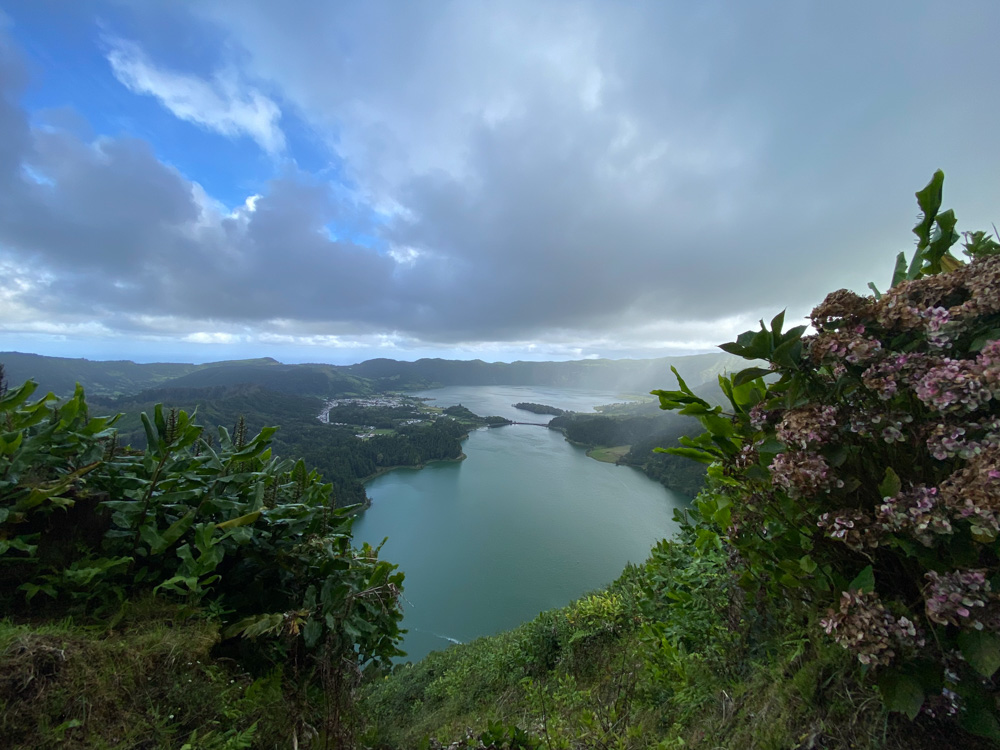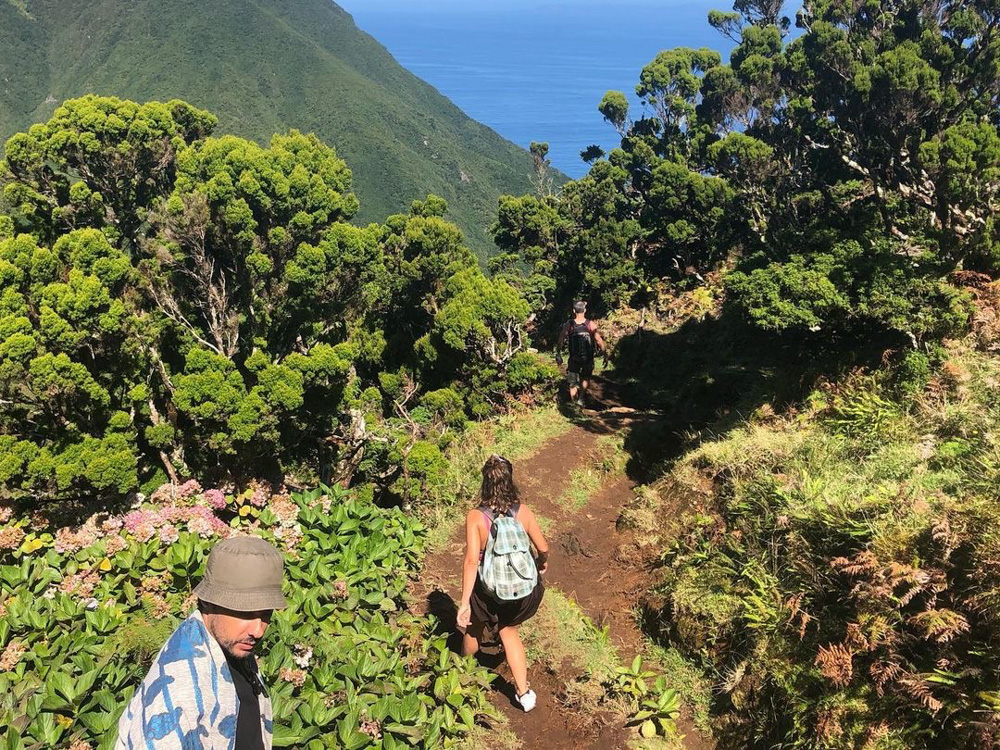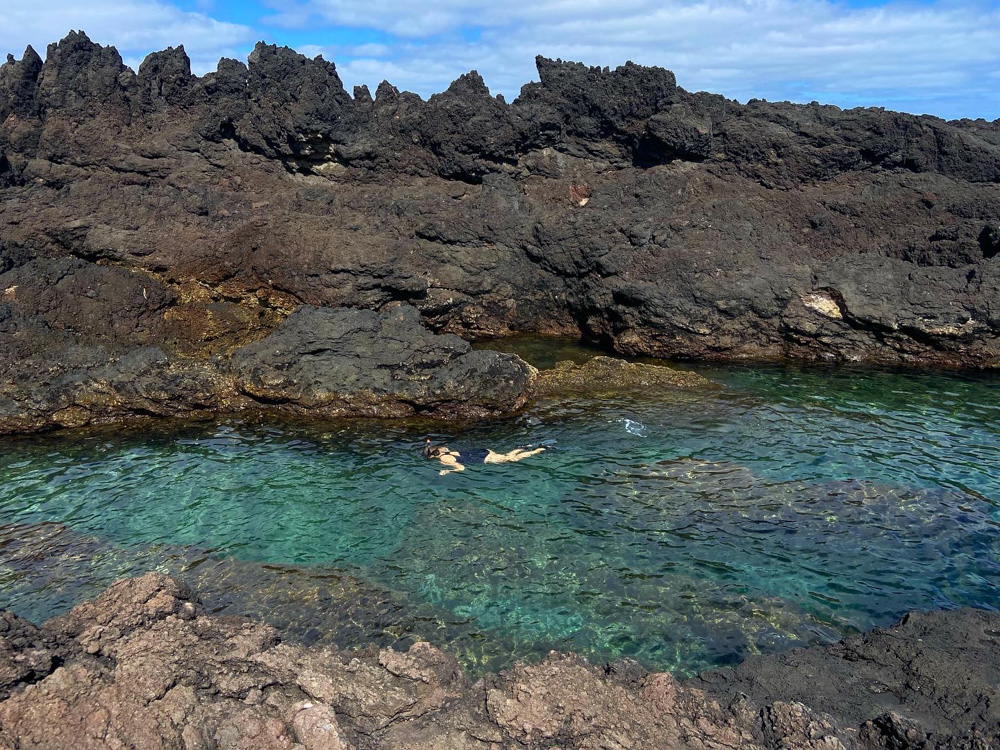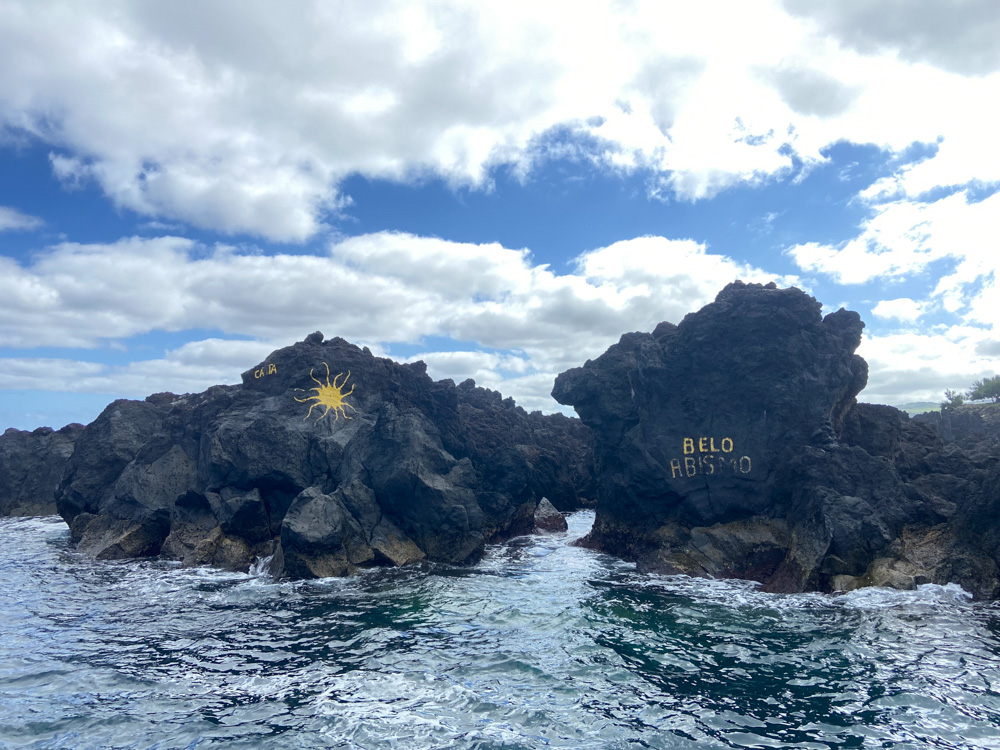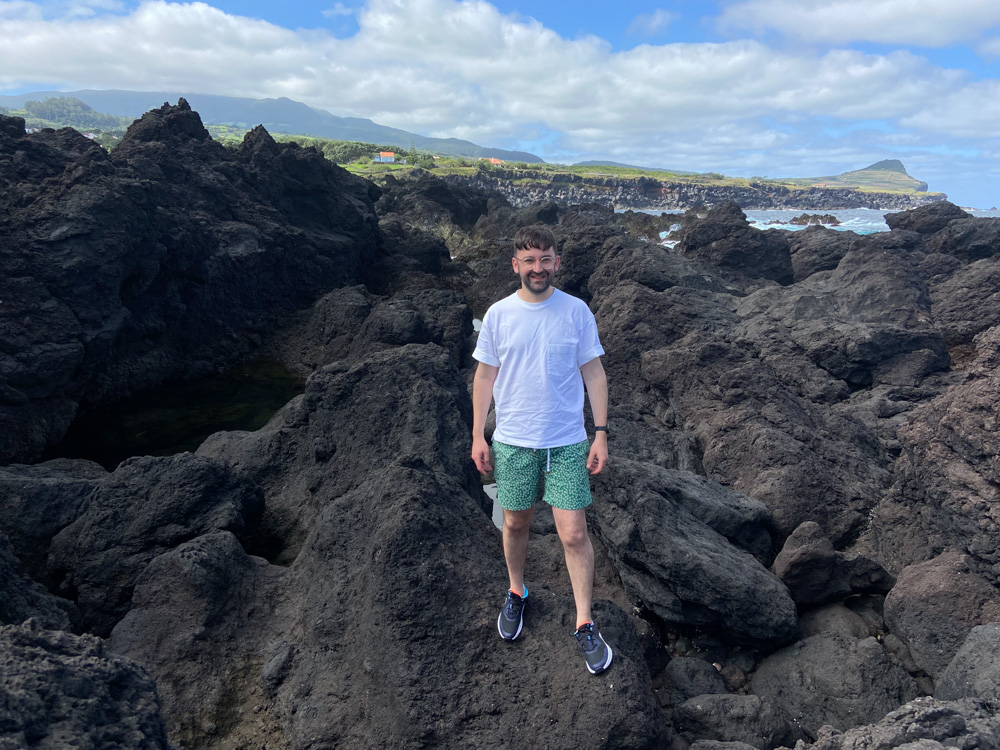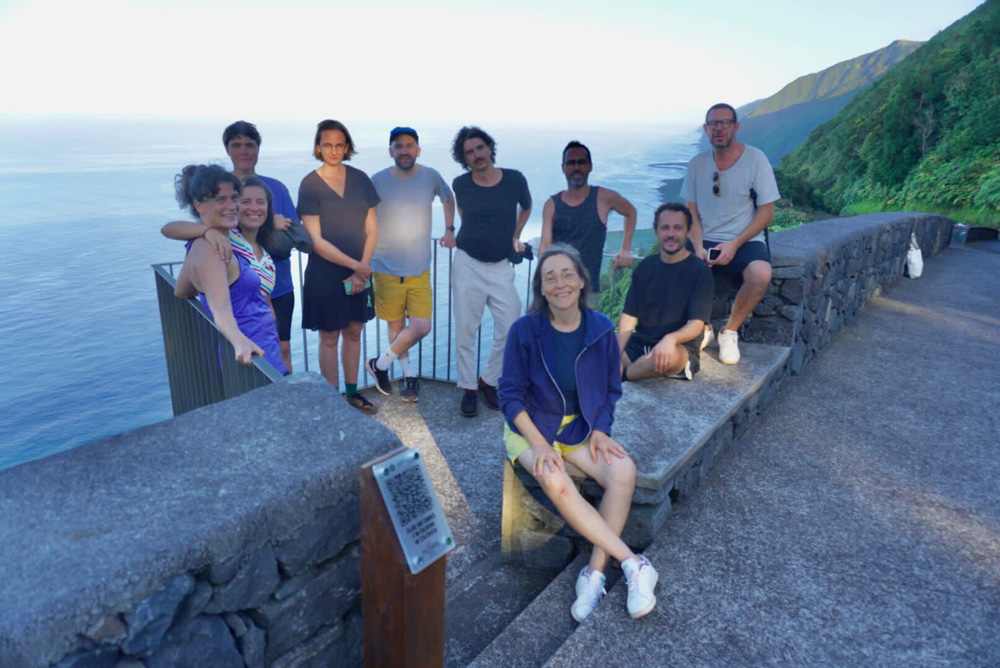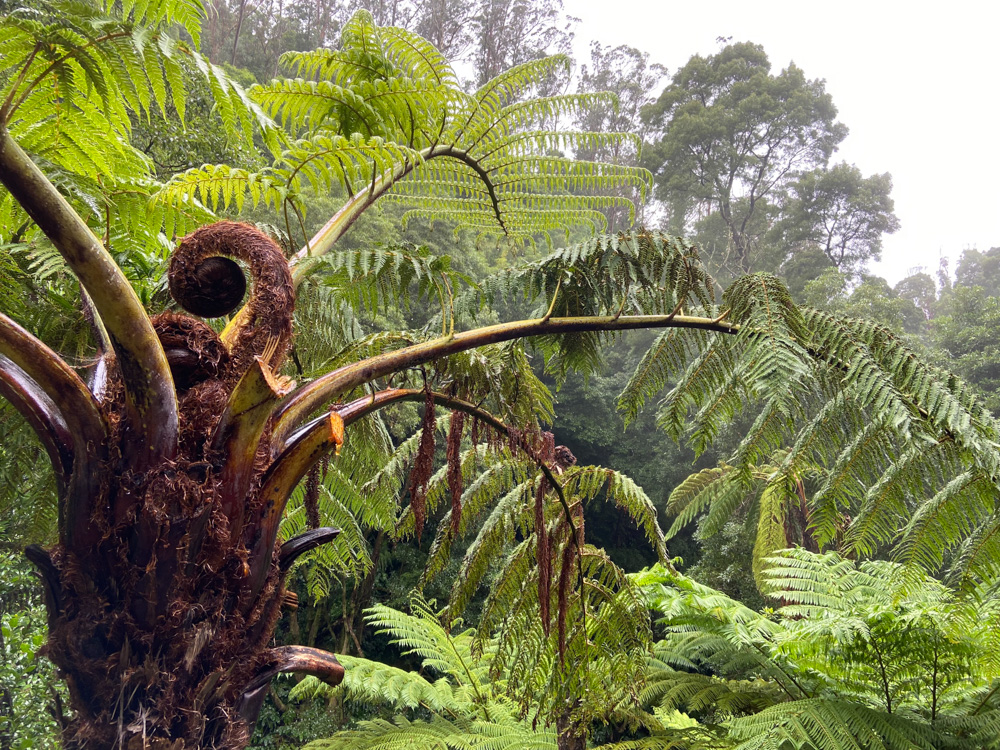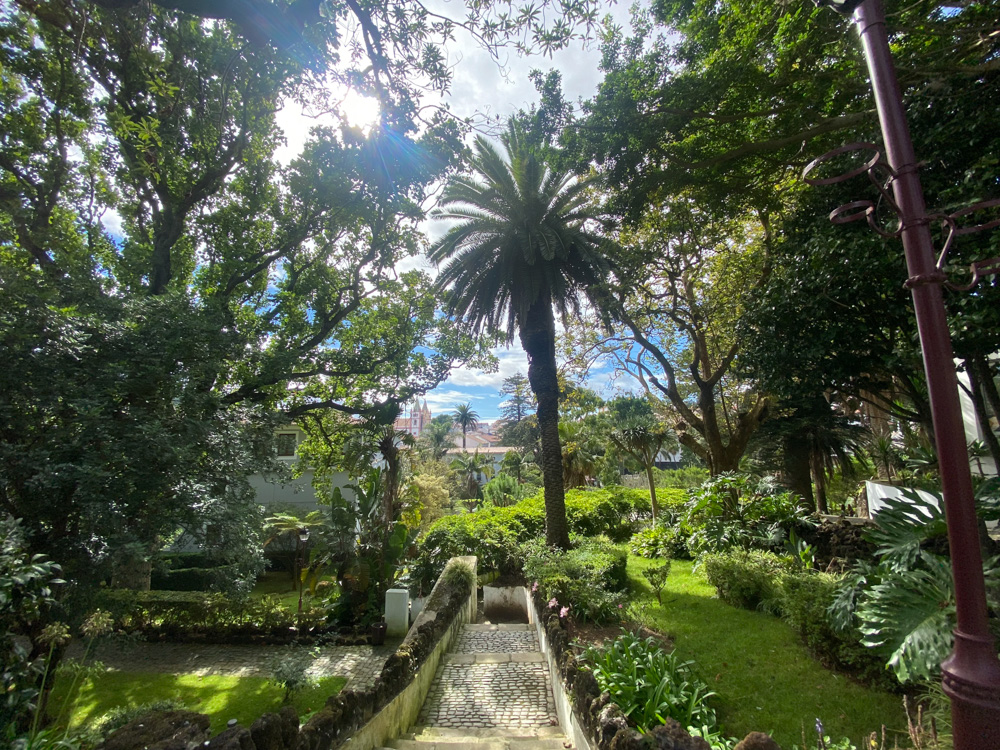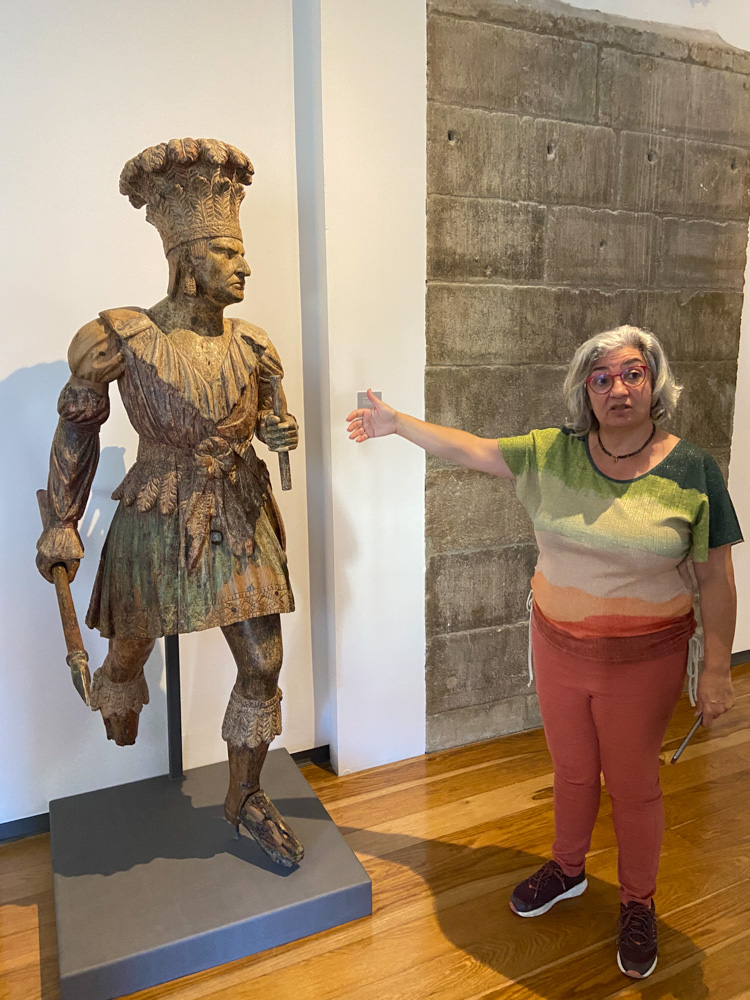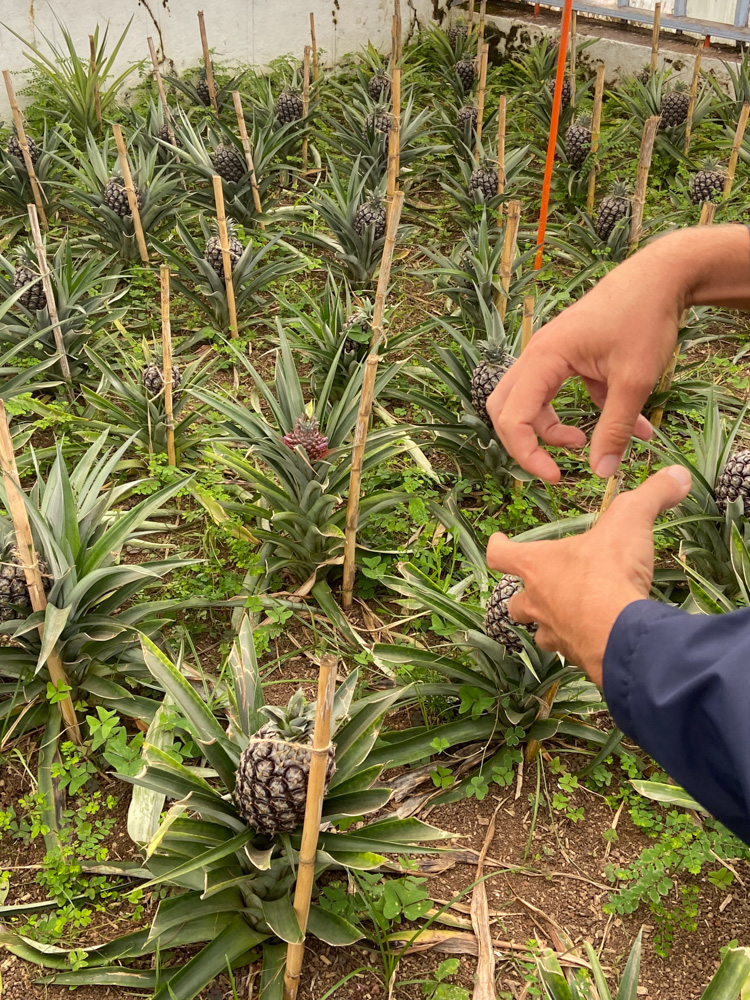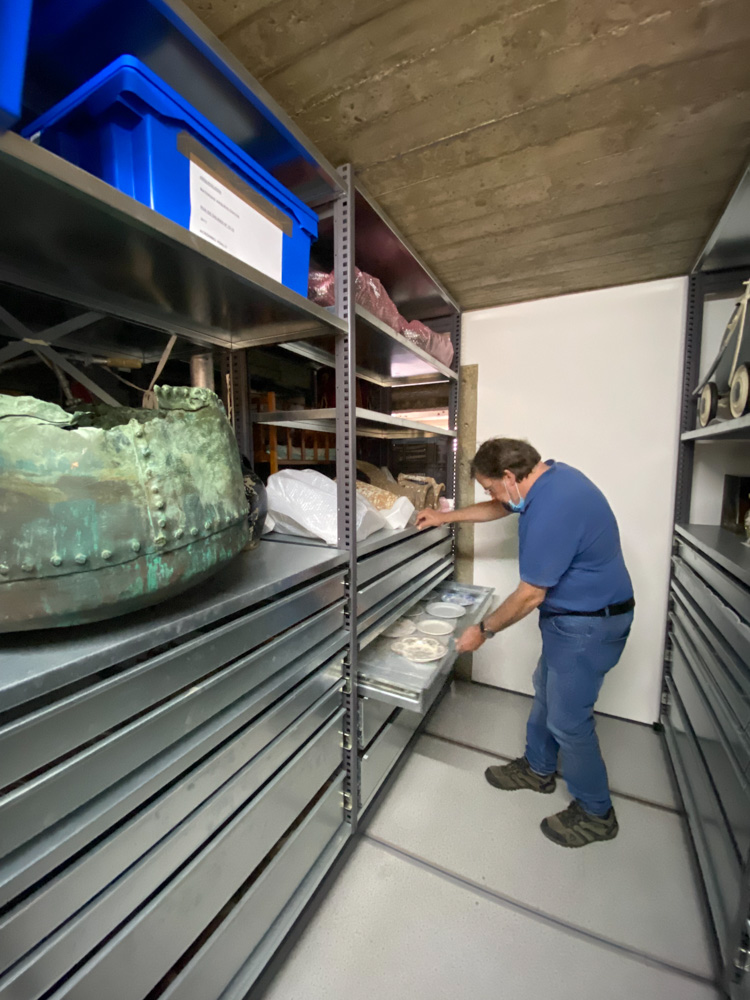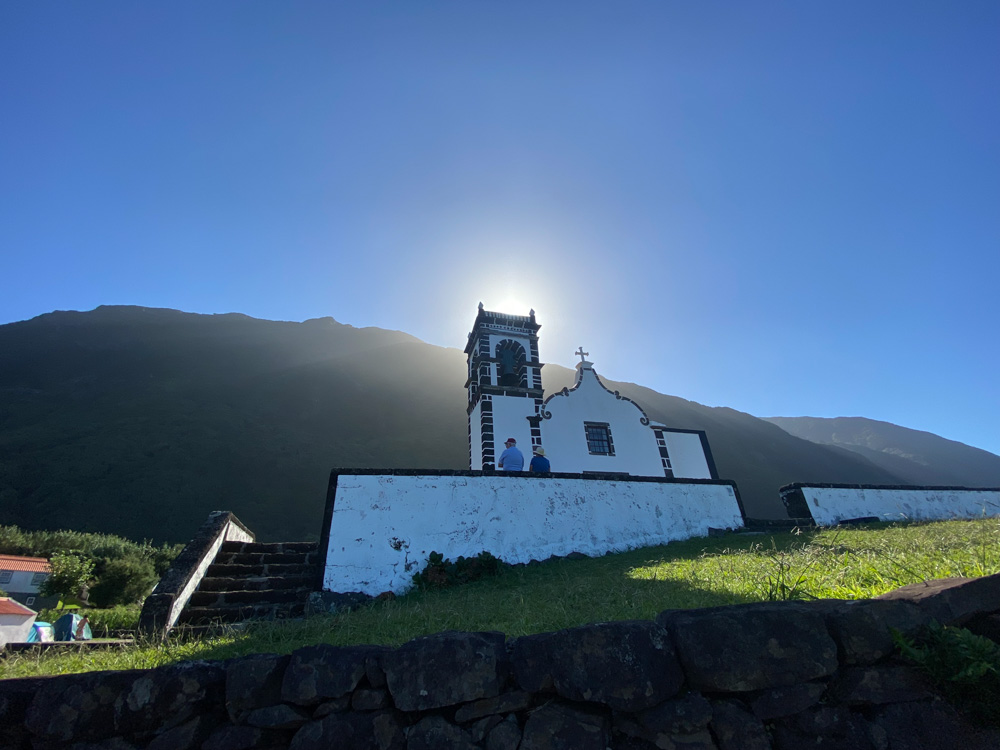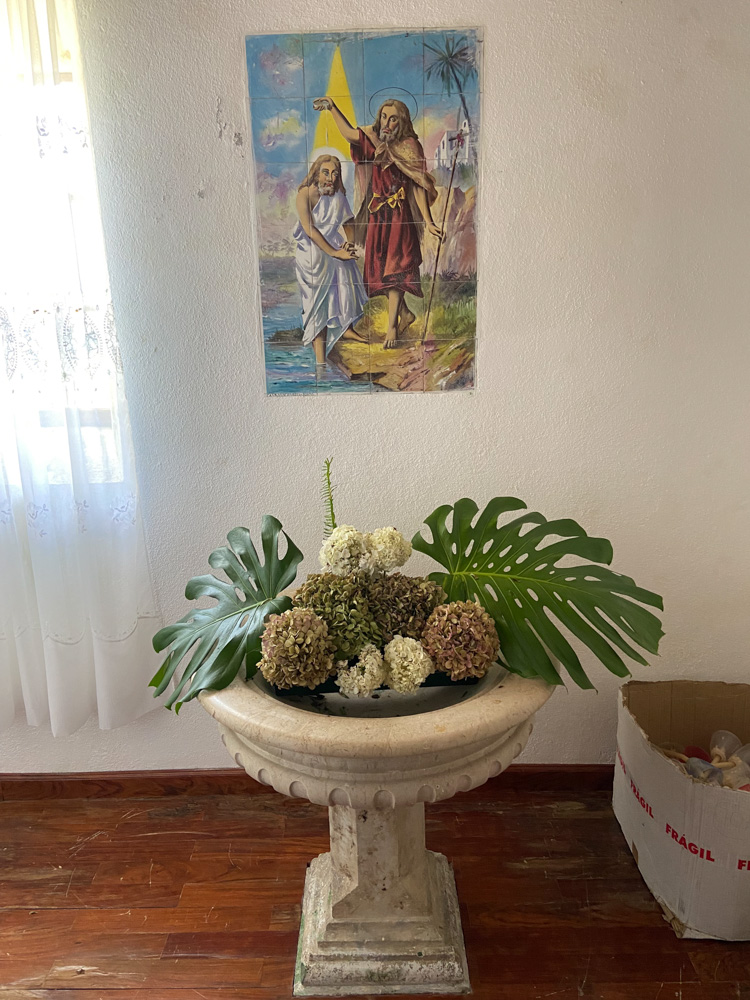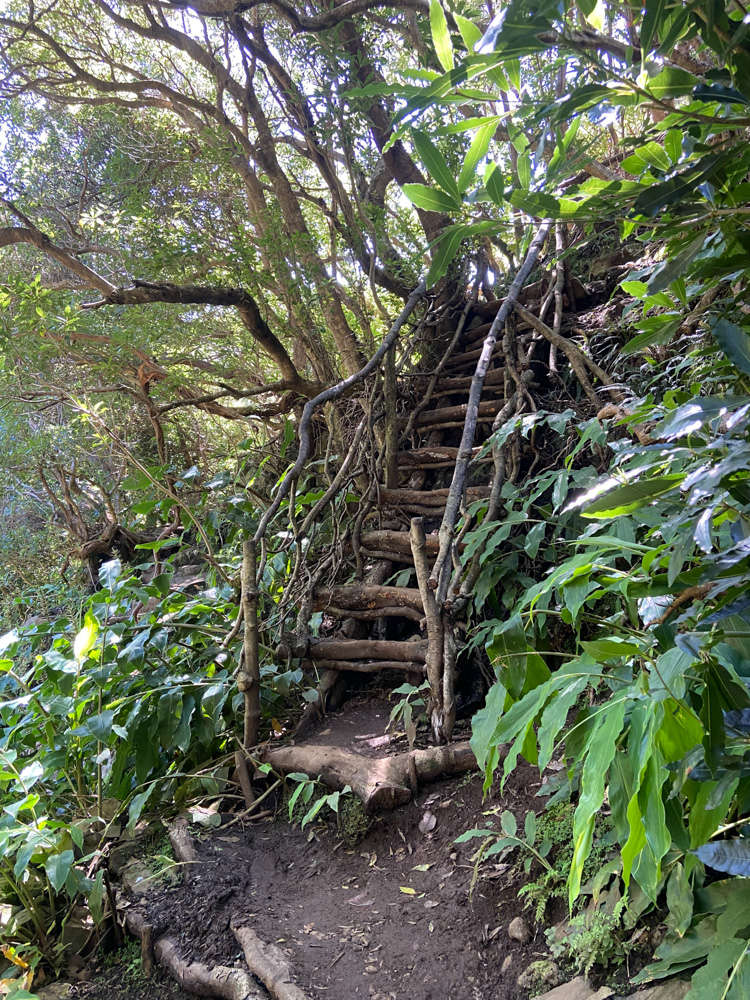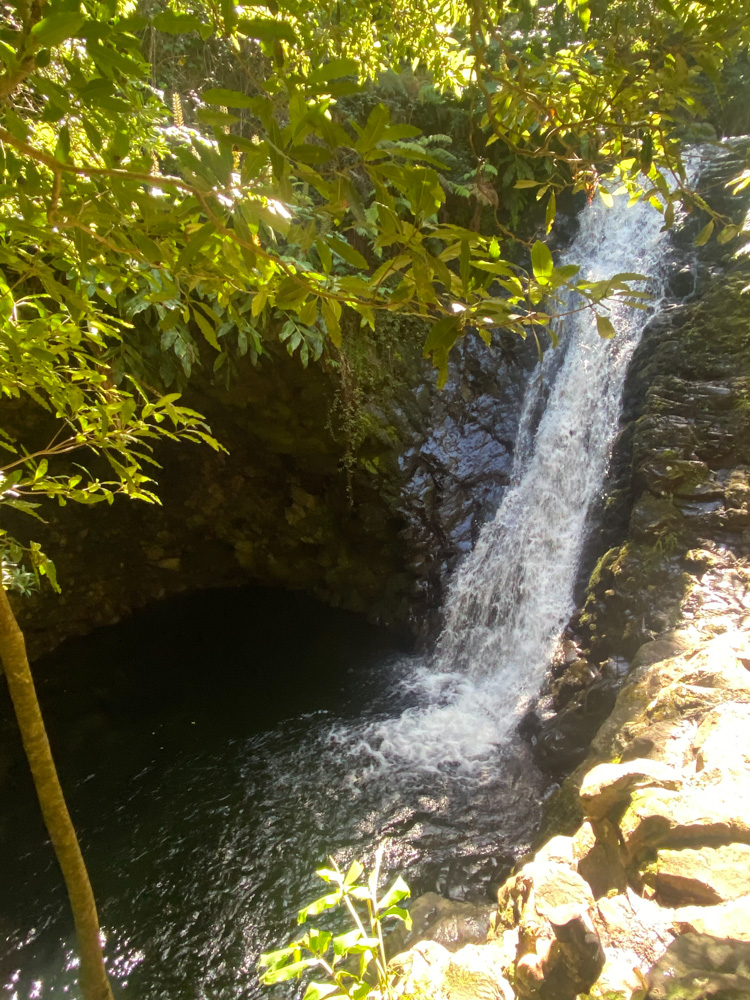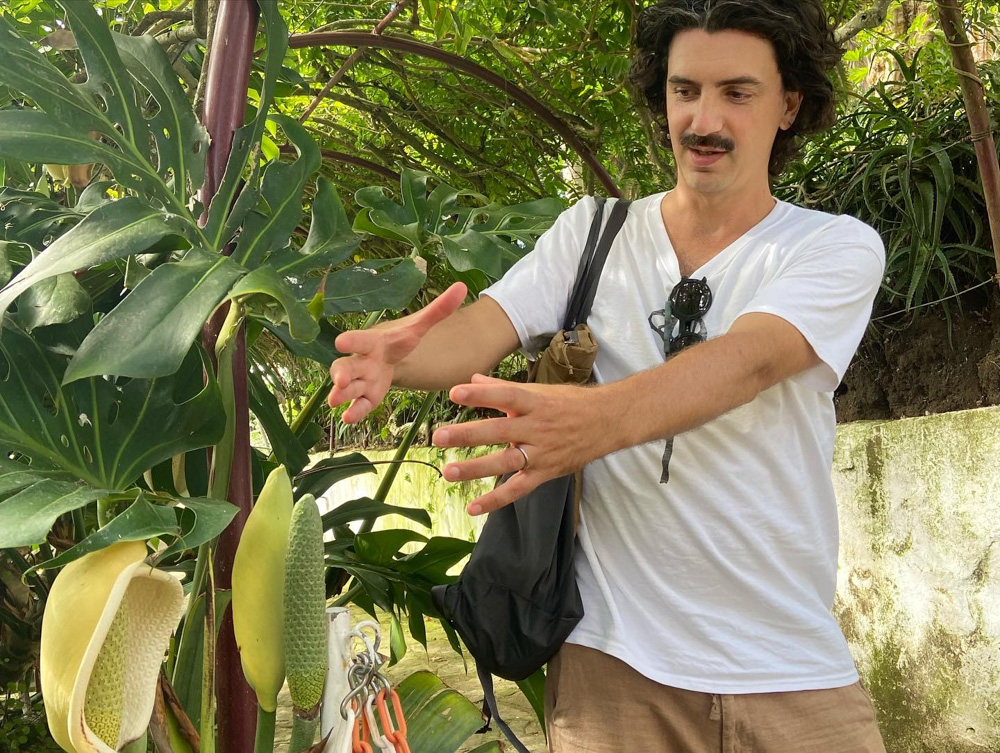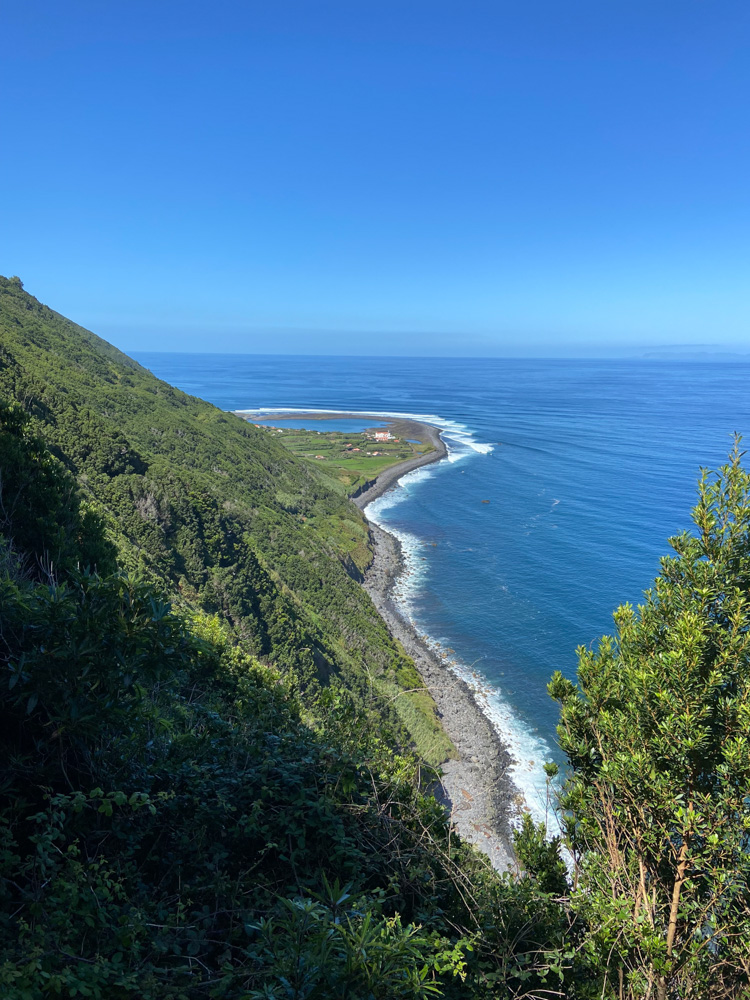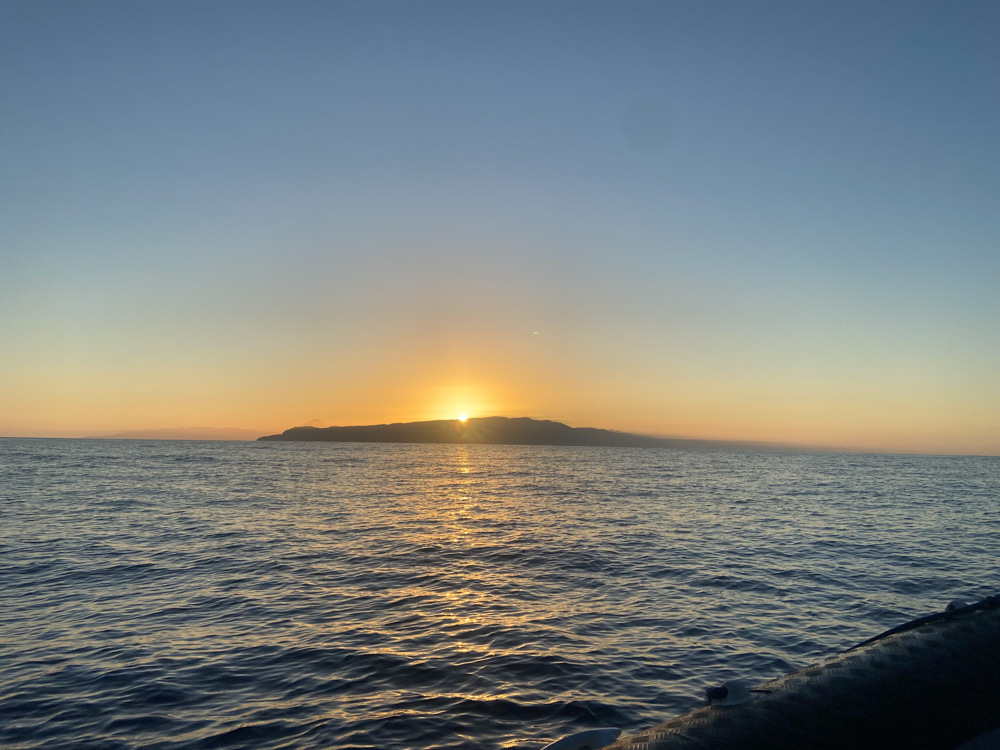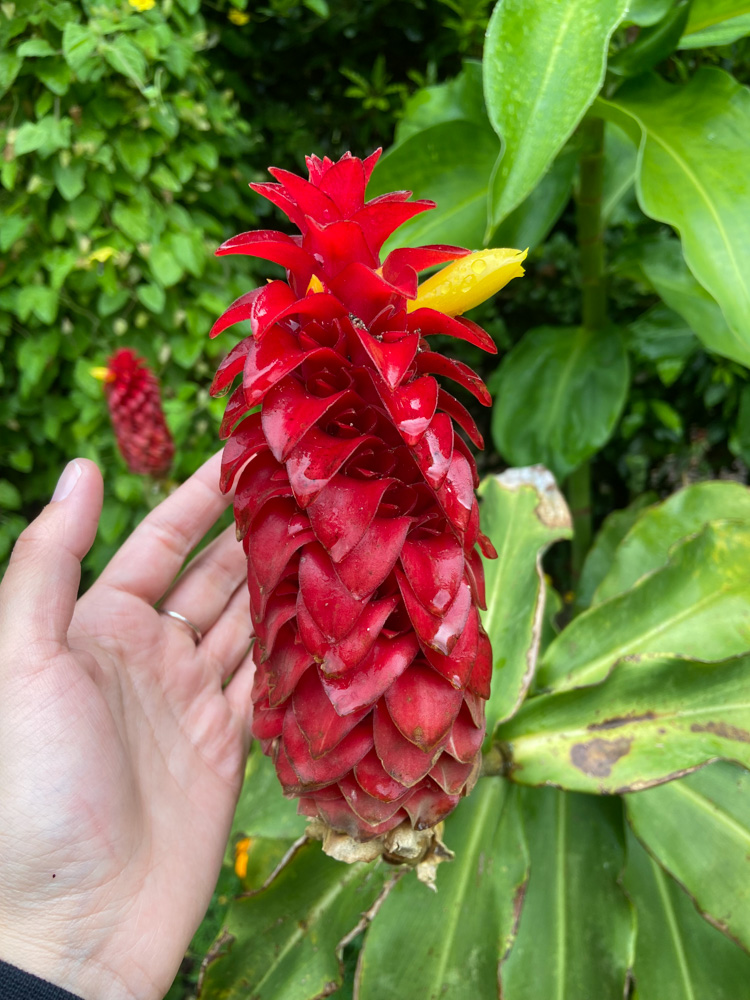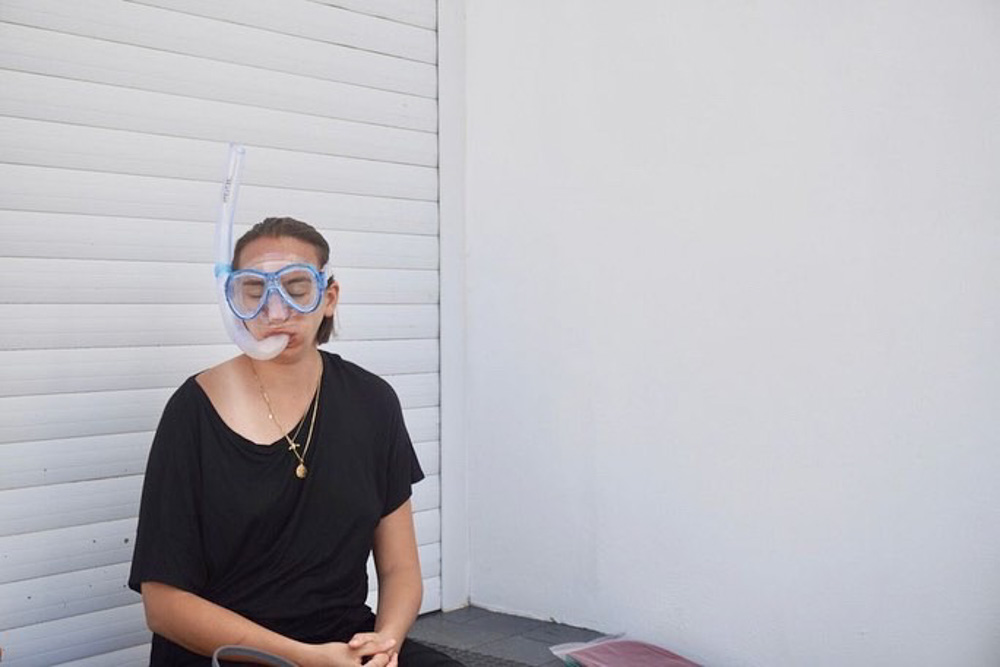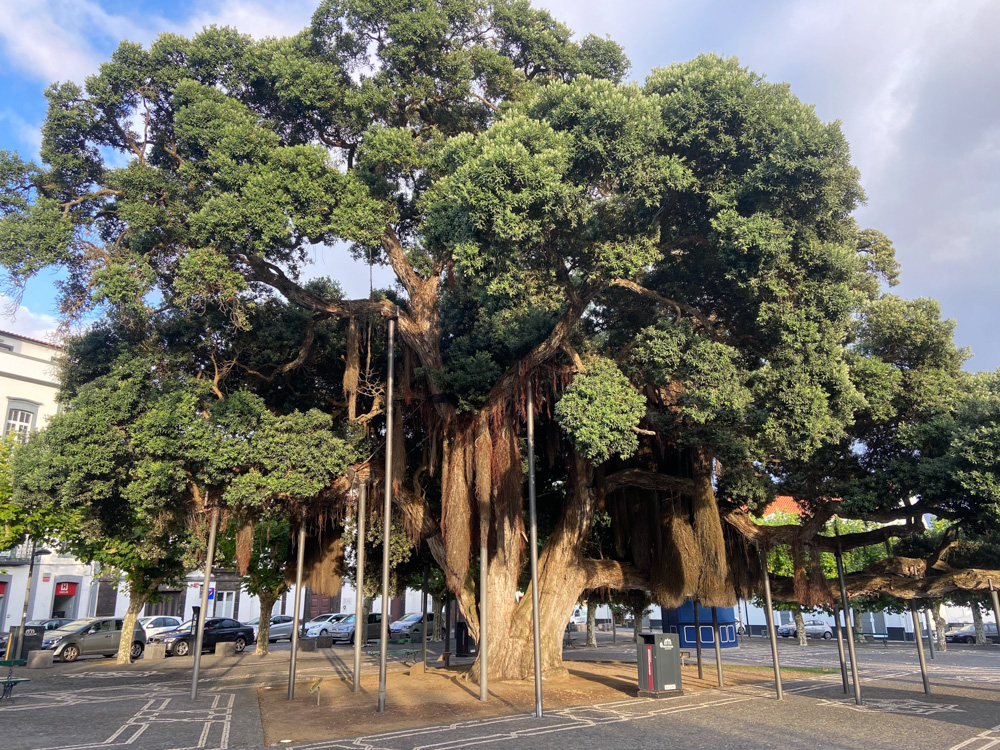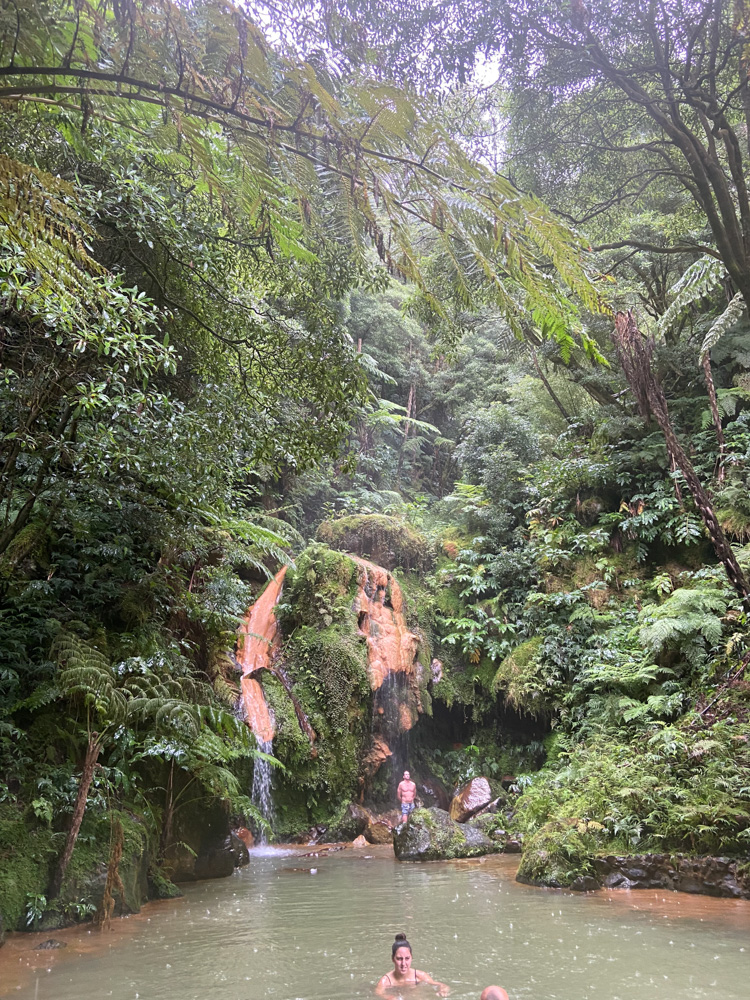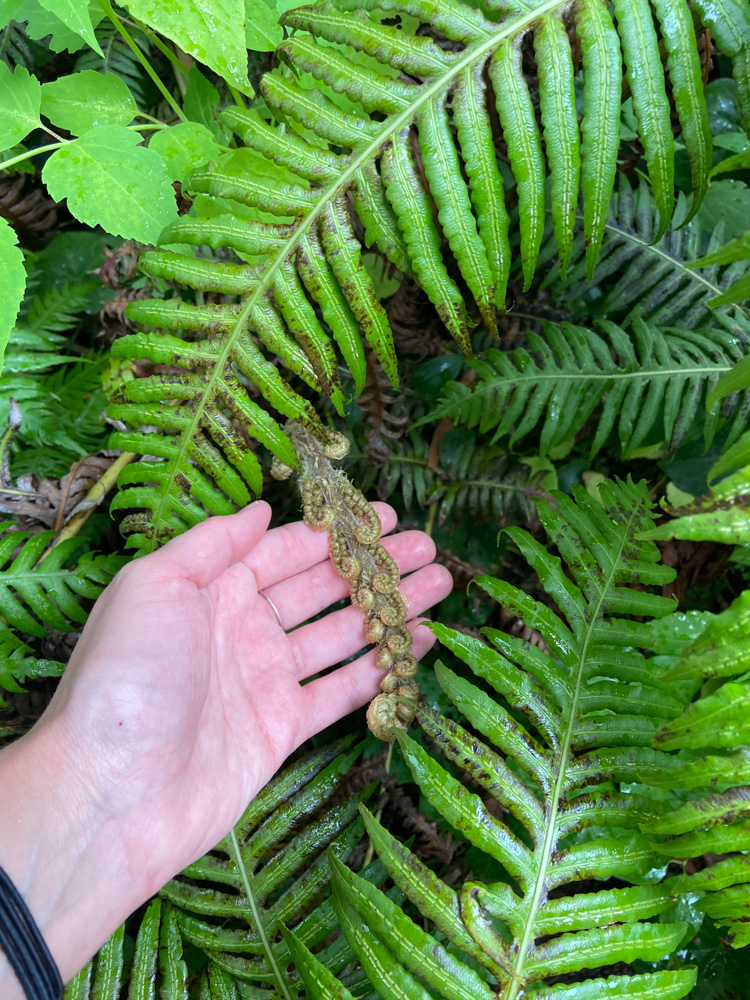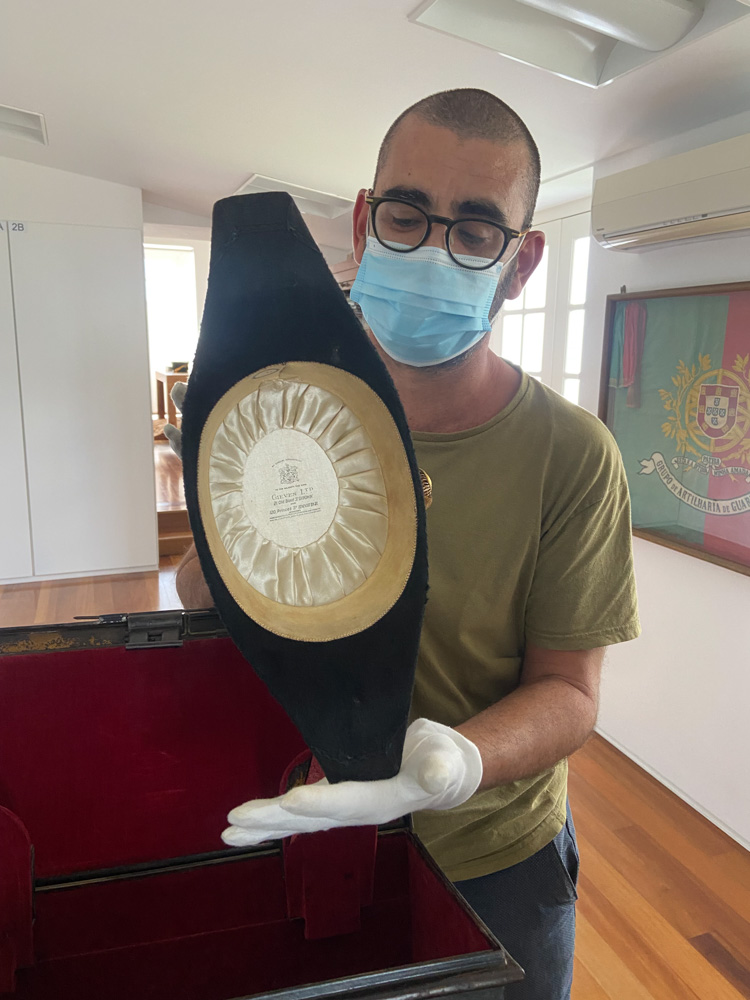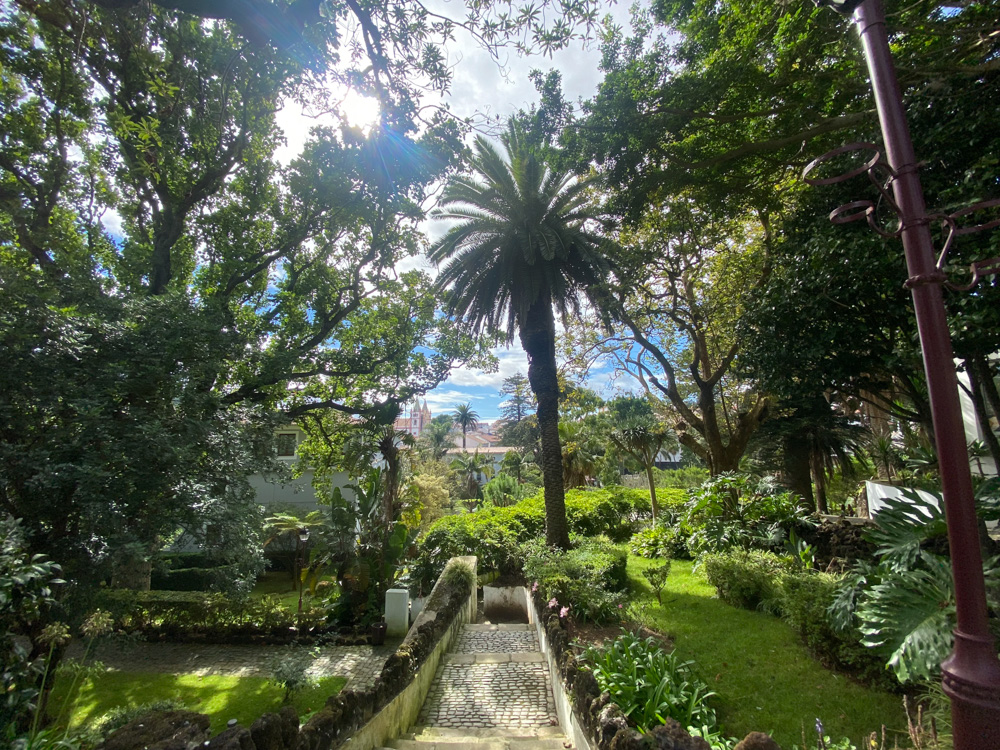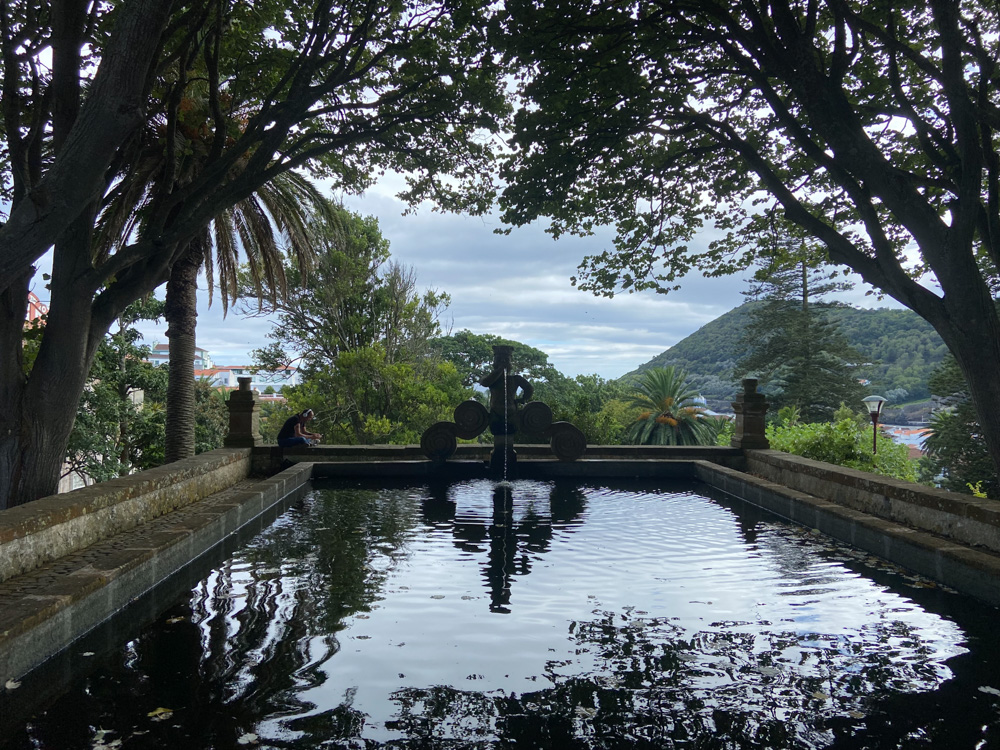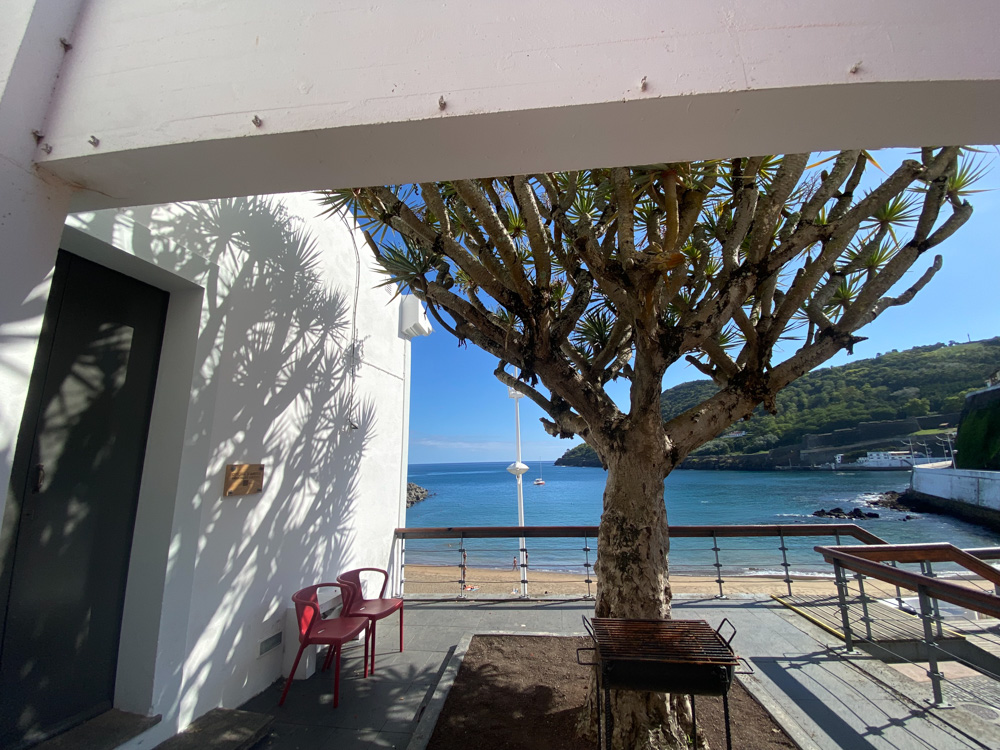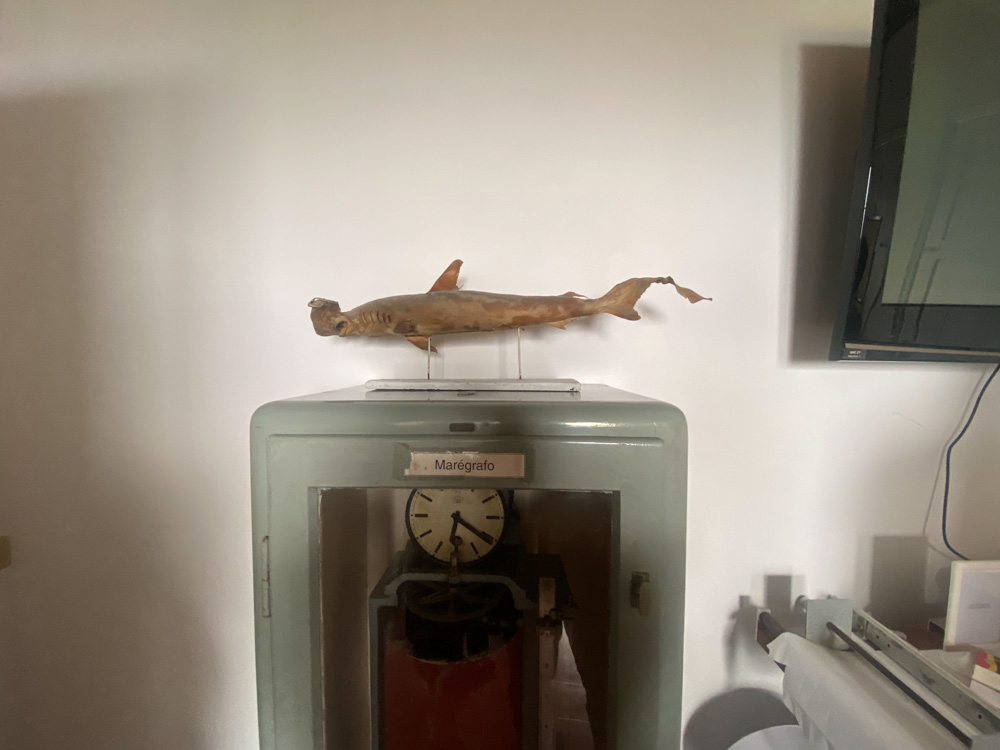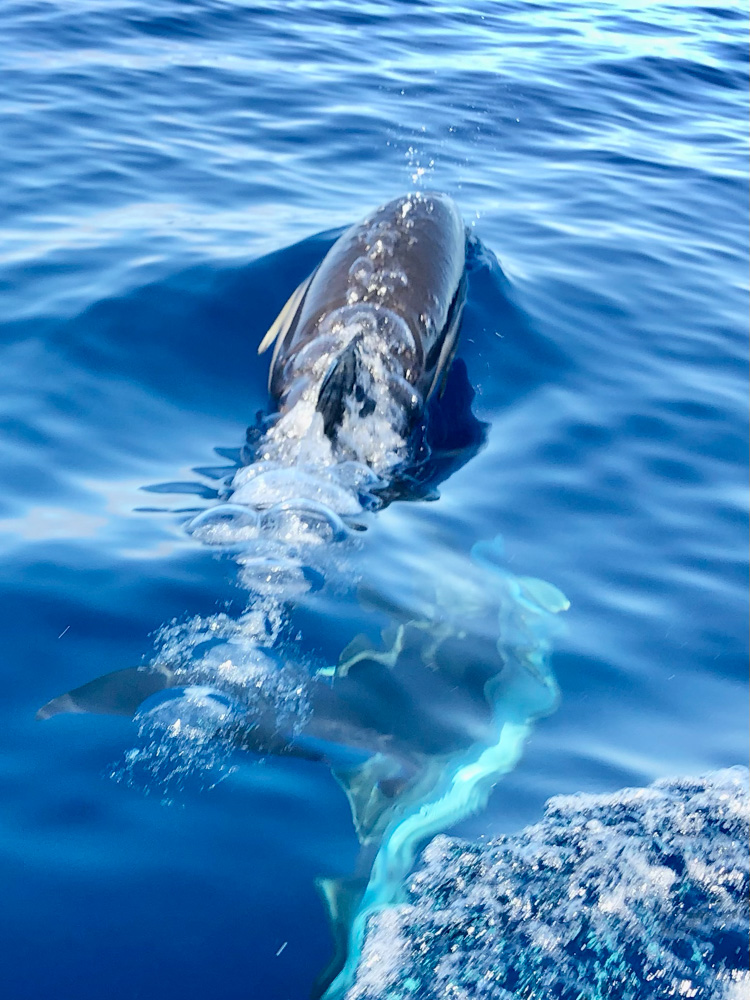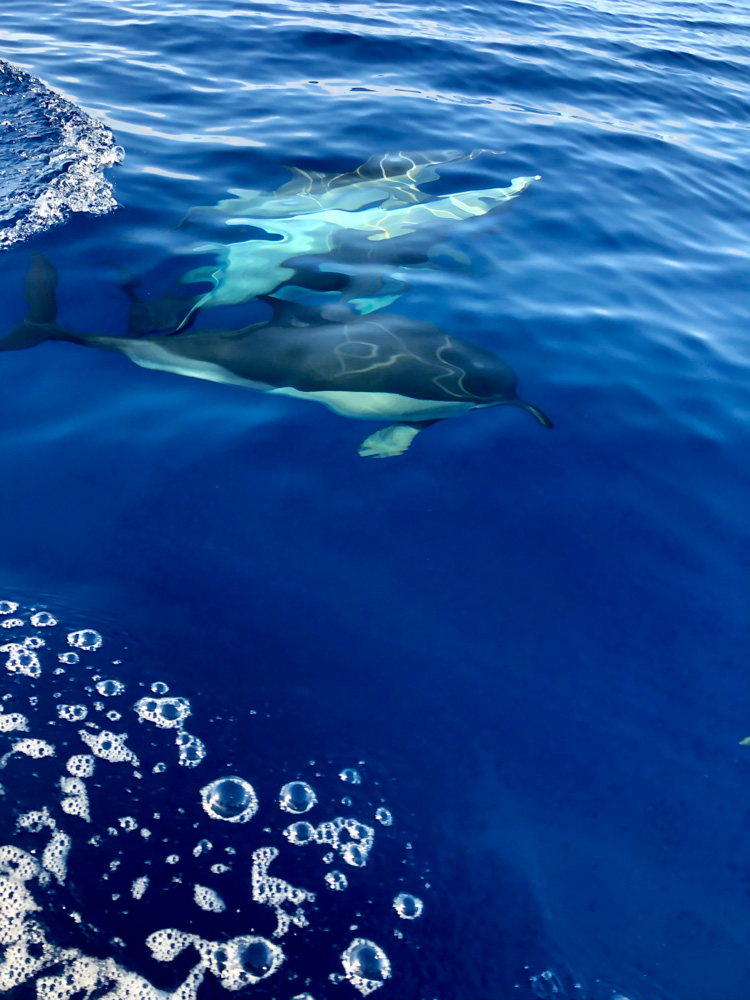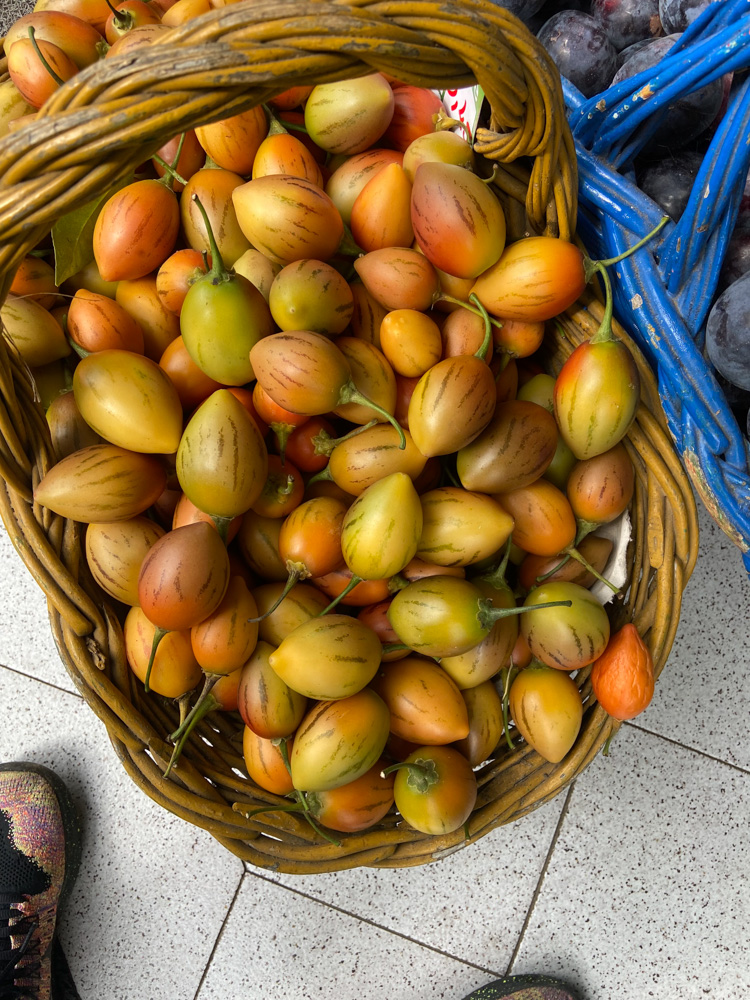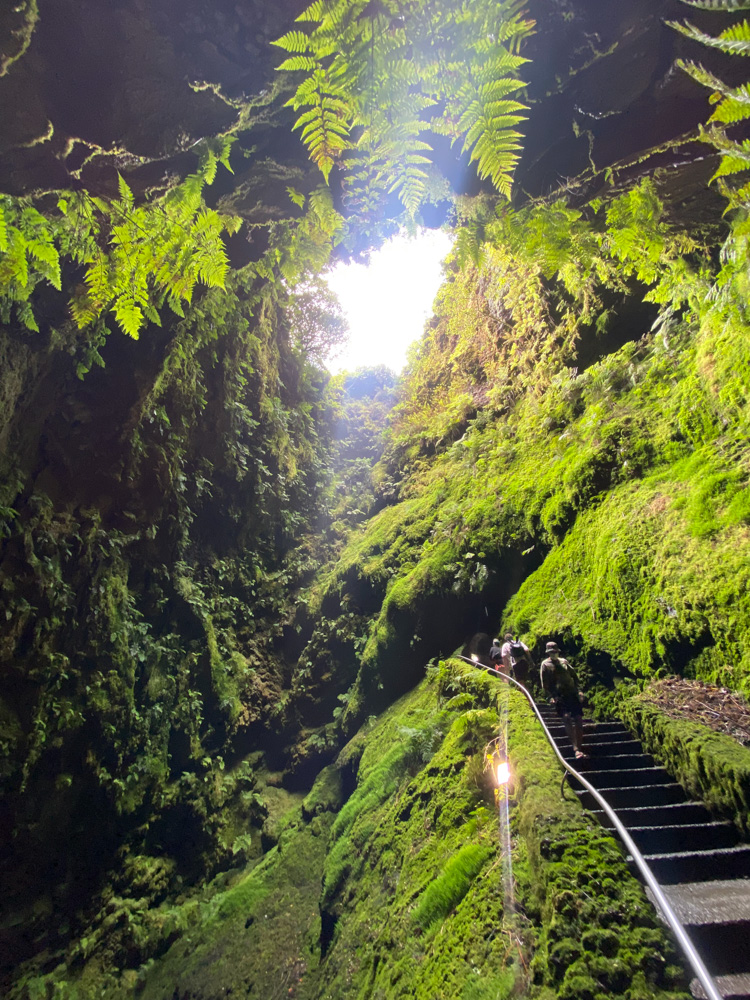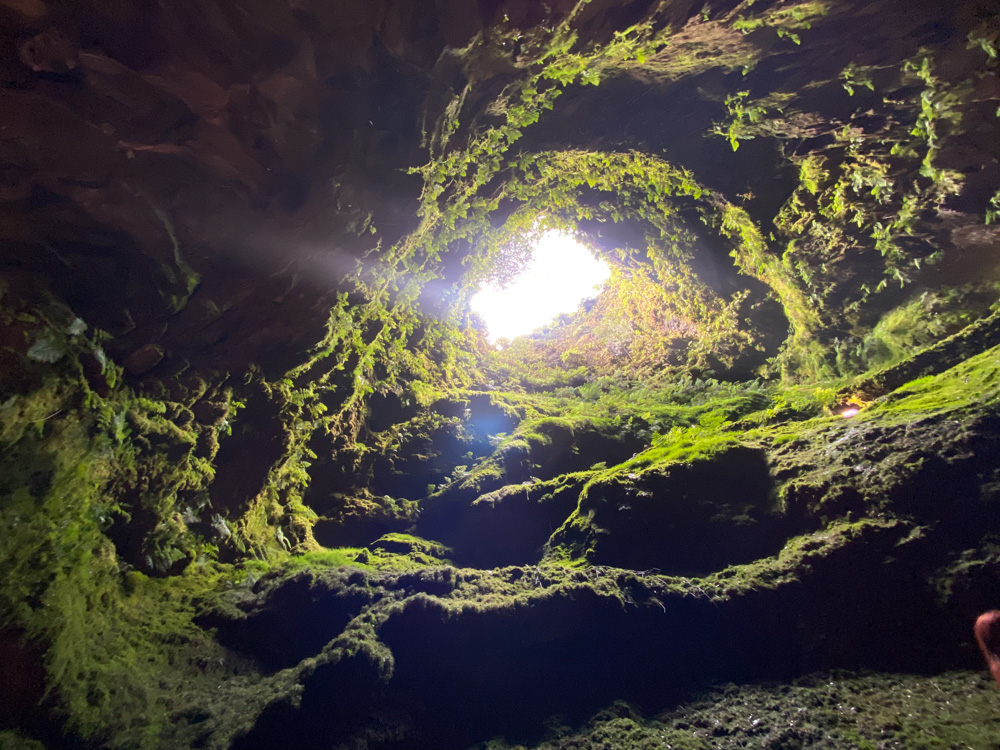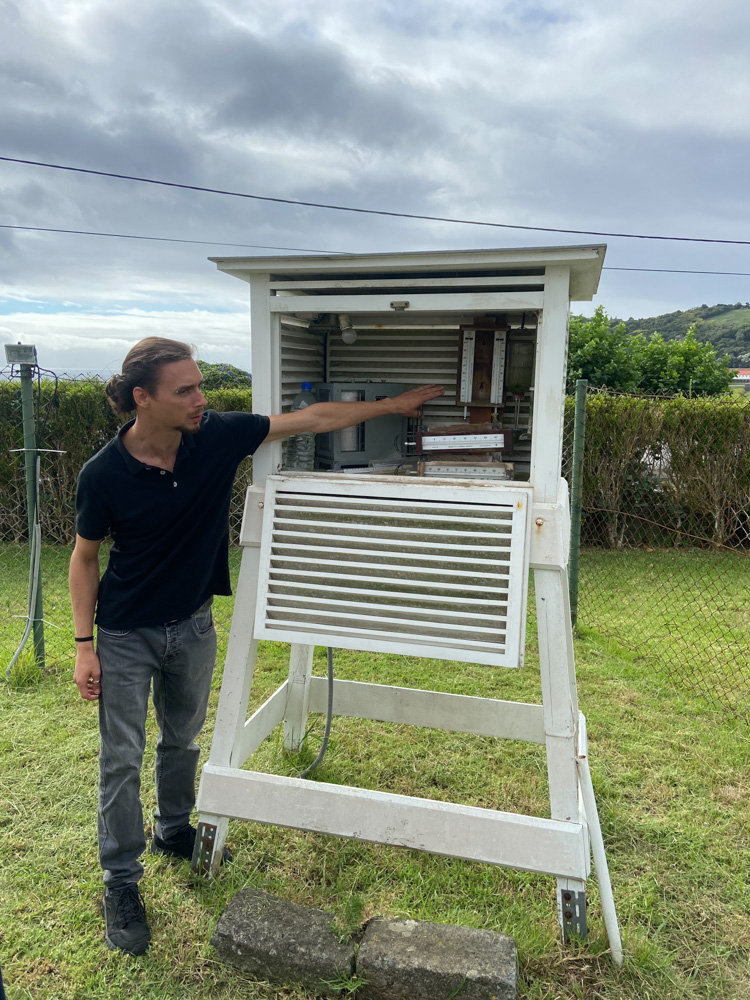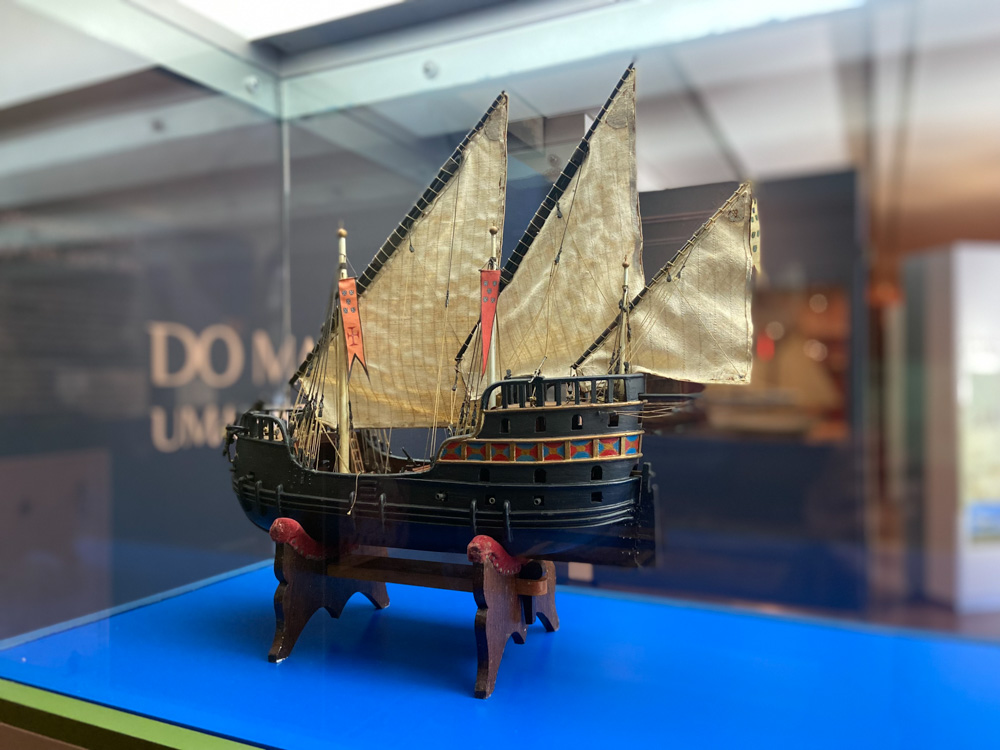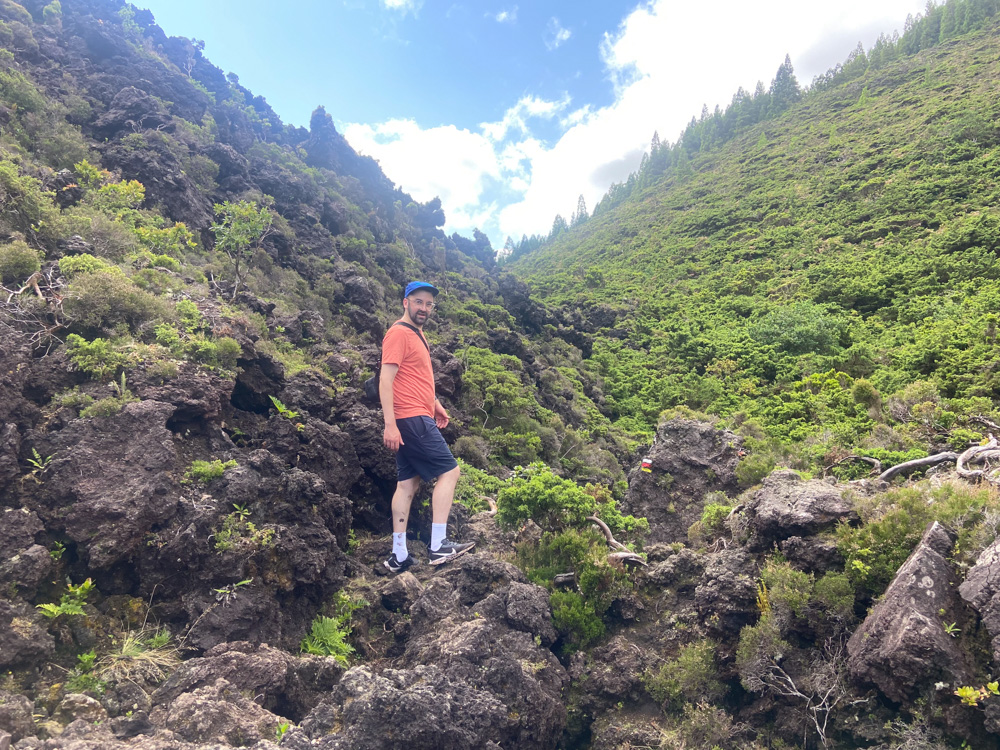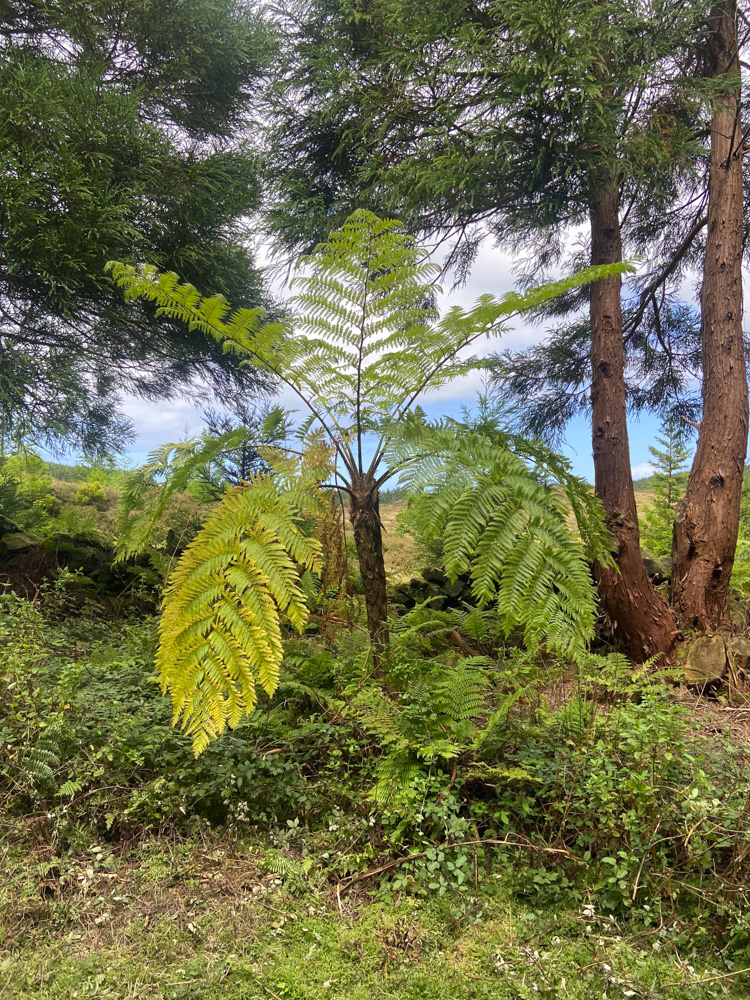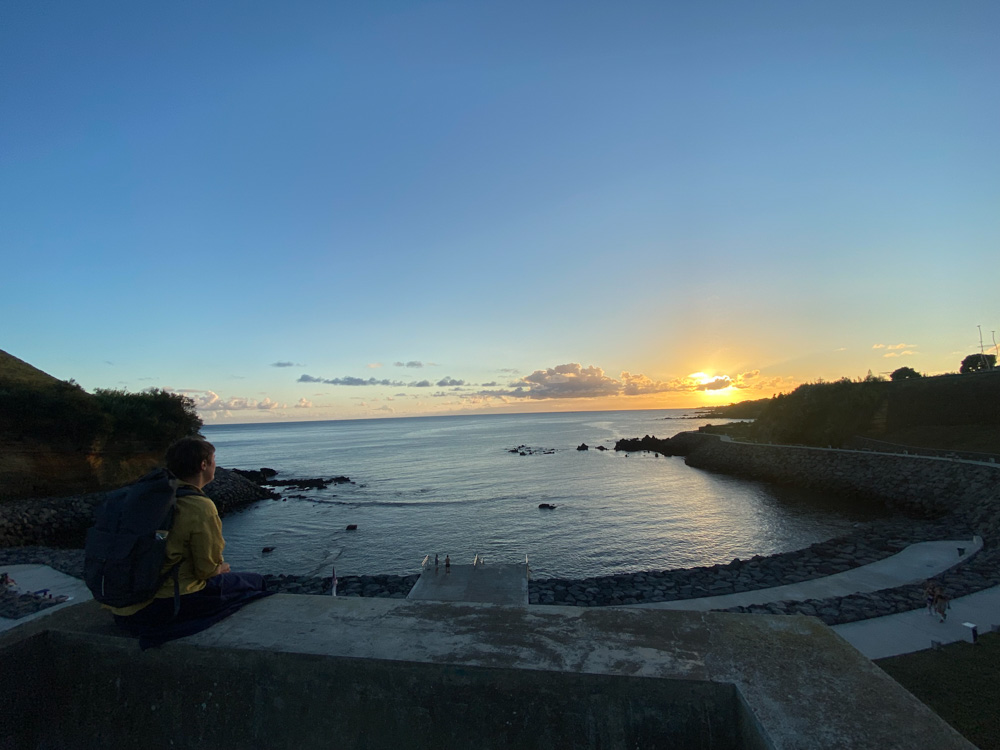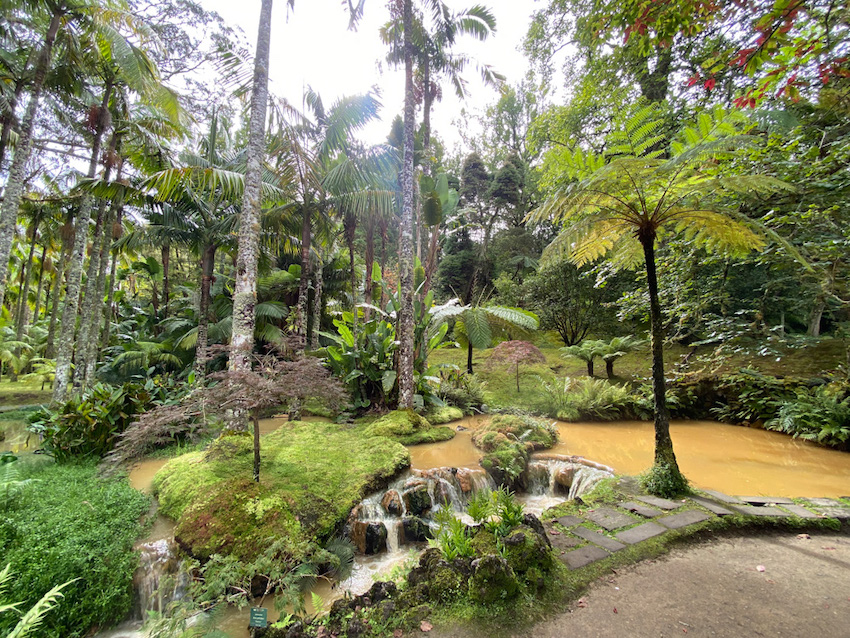
I have been in love for 8 million years
Pedro Barateiro, Richard Healy, Ingela Ihrman, Adrien Missika, objects from the collection of MAH Museum, Carmina Galeria, Terceira Island, Azores, Sept 2021 – Jan 2022
residency/expedition with Re_Act Contemporary Art Lab, Azores Archipelago
The formation of the Azores archipelago is an expression of the ever-emergent world, a continuous becoming with various phases of rising and falling intensities. Sitting between three continental plates, rather than being defined by a single fault, an extensive series of fracture zones keep opening like a wound that never heals. The pushing and pulling of p(l)ains create conflicts and eruptions. Materials boil and vent through orifices of various sizes. Viscous volcanic lava flows and solidifies into deposits of deep time – they form the voluptuous bodies of the islands. The rims of collapsed volcanoes embrace a series of lakes, like the inner ocean of the body or the amniotic fluid in women's wombs. Matter continues to transform into fertile, verdant mountains, a lusciousness ripening for capitalist exploitation. The mechanisms that form the complex relations of the archipelago are geological as well as linked to the natural wealth and extraction of resources; the unique strategic location and histories of plant and human colonisation; infrastructure projects and struggles for self-sufficiency; the threat of extreme weather and global climate crises; love, leisure and social media algorithms recommending bucket-list type tourist destinations...
The artists’ works in this international group exhibition address the idea of change and transformation. Various figures or alter-egos go through the world, trying to orient themselves and reflect on their relationship with their surroundings. Encountering the world happens via processes such as the intimate and sometimes profoundly sexual experience of desire and tactility; understanding how a certain gaze and the creation of otherness as a category can create violently unequal relationships; or experiencing the fact that, in a highly capitalistic world, Google is often able to predict more precisely what we desire than we ourselves can. These unconventional characters embody a desire for radical openness and propose ways to deconstruct oppressive binary paradigms and regimes of control. Slowly the distinction between the self and the environment dissolves as the outlines are traversed by substantial material interchanges.
As Stacy Alaimo’s concept of transcorporeality explains, all organic beings are inseparably linked to their environments. Transcorporeality challenges dualities and instead assumes intra-actions, entanglements and transits between human and other-than-human bodies and matter. The transcorporeal subject is generated through and intertwined with biological, technological, economic, social, political and other systems – processes of vastly different scales. Similarly, the works in the exhibition highlight the fact that all beings are intermeshed with a dynamic material flow that passes through them, transforms them and is transformed by them.
--
The sea complicates my ideas about how identities and relations are organised and where the Self begins and ends. Skin is often seen as an enfolding interface, but the self exceeds this porous boundary by constantly being in relation; transmitting; recording; absorbing. When lifeforms come together and thus simultaneously transcend their status as subjects, what happens with emotions like loneliness and belonging? Who is the one feeling touched or hurt?
– Ingela Ihrman
At the centre of the world there is a fiction; a fictional piece of land a meter wide by a meter long. It has not been thrown up from the depths; not from the violence of lava bursting up and cooling, though there is violence in its history. It is called Null Island, and you cannot travel there. – Introduction to Fiction as Method eds. Jon K Shaw and Theo Reeves-Evison, Sternberg Press, 2017
– quoted by Richard Healy
Colonising sea and land, colonising the minds of others, their native languages, music. Hybridity and creolisation. The trade of ideas, the exchange of diseases and microbes. Normalising violence and ownership of the body.
– Pedro Barateiro
Synching the rhythms of the commons, we include both humans and non-humans in the ecologies of change and honour their infinitesimal role in the transitional states of matter, from the ineffable to the macro level. We reclaim the navigational tools that we summon, the weather horizons and changing climates, and invest in our mutual transformation. Not on a basis of speciesism but in the consideration of what lives and will live.
– Margarida Mendes, Bodies are Weathers– on Adrien Missika’s work.
